With the summer movie season now quietly winding down, the fall movie season is upon us and while we expect a handful of release dates to change as writers and actors fight for what they deserve, it’s time to look at what’s on the horizon. As we do each year, after highlighting the best films offered thus far, we’ve set out to provide an overview of the titles that should be on your radar.
Featuring 40 films, the below preview includes both the best we’ve already seen (with full reviews where available) and the anticipated with (mostly) confirmed release dates over the next four months. A good amount will premiere over the next few weeks at Telluride, Venice, TIFF, and NYFF, so check back for our reviews. Dates below are theatrical releases unless otherwise noted.
Astrakan (David Depesseville; Sept. 1)
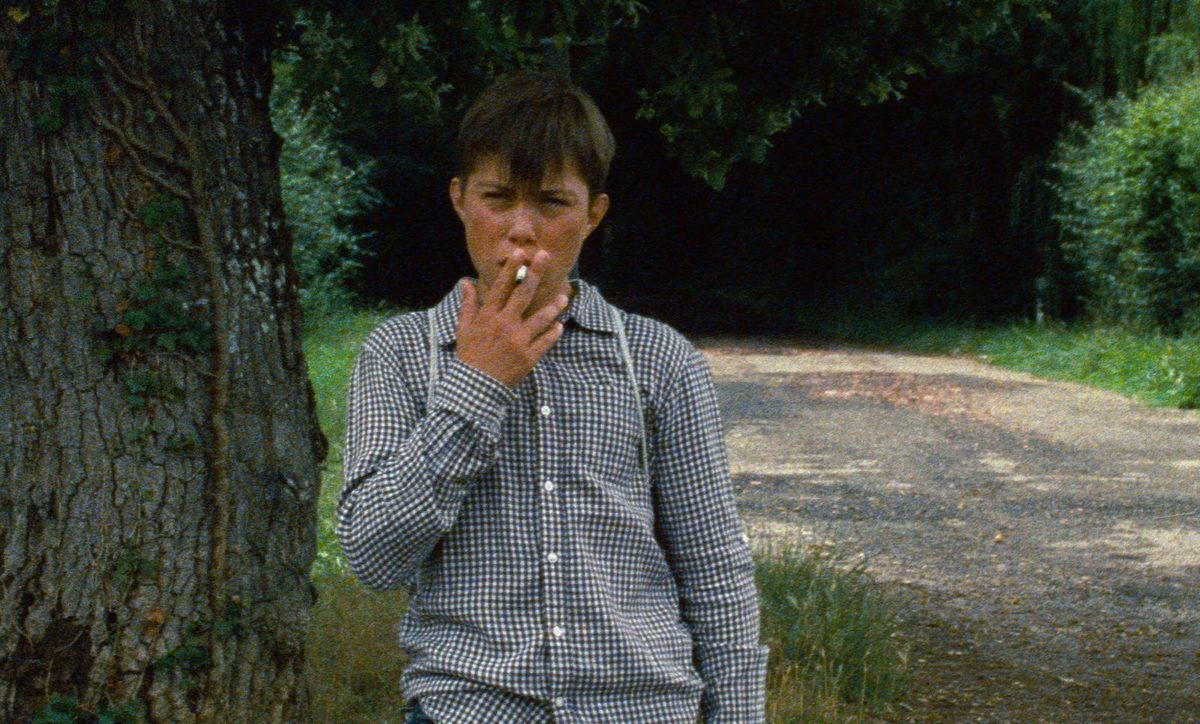
Astrakhan fur is unique: dark, beautiful, and stripped exclusively from newborn lambs, even ones killed in their mother’s womb. (Stella McCarthy once said it’s like wearing a fetus.) That ruthlessness—a sense of lost innocence; blood sacrifice—runs deep in Astrakan, a new film from France and one of the better in Locarno this year; and if that title isn’t enough to give pause, plenty else in the opening exchanges will. The first act is a procession of flags, both red and false: at the opening the protagonist, Samuel, lightly goads a snake in the reptile house of a zoo; moments later a rabbit is hung and skinned in his kitchen with all the ceremony of a boiled kettle; queasiest of all, an older lad is seen walking toward the house cradling berries in his shirt, just enough that the lip of his underwear and his midriff are left strikingly visible. – Rory O. (full review)
Perpetrator (Jennifer Reeder; Sept. 1 in theaters and on Shudder)
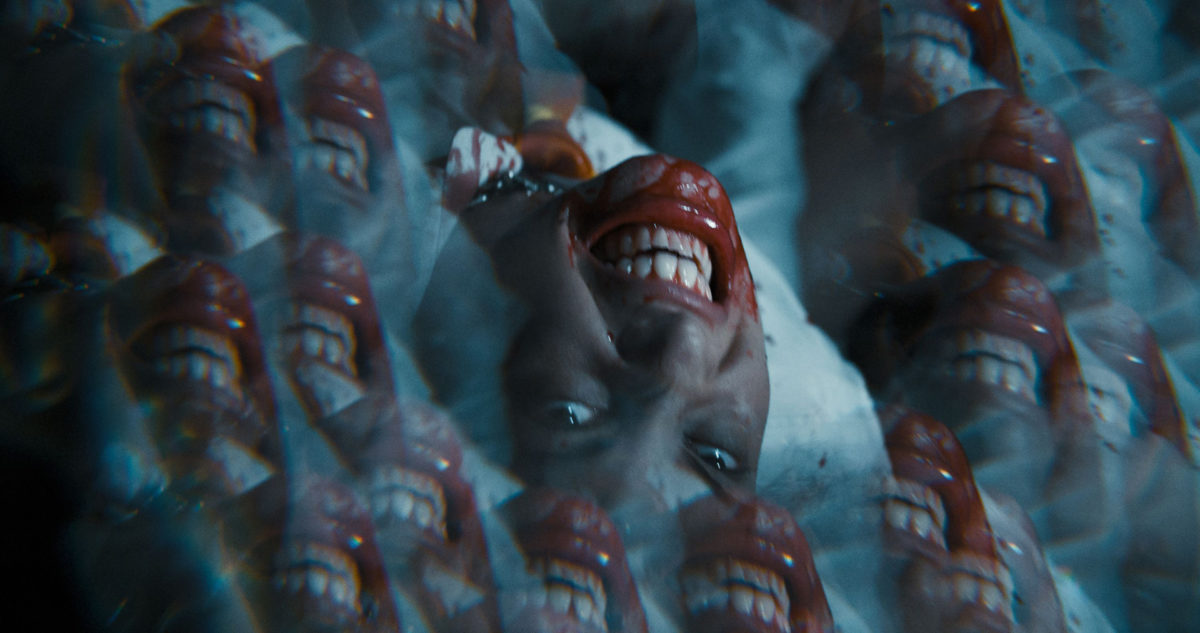
Just when you thought filmmakers and creators had exhausted everything worth saying in American high school-set comedies and thrillers, along comes Chicago-based independent Jennifer Reeder, who seems devoted to this subgenre as if by a monastic oath. The high school movie––with its classic, standby imagery of jocks, lockers, and losers––seems to have passed through three main cycles in the ’80s, ’90s, and ’00s, and in spite of its absolute specificity to the US education system, has found itself weirdly comprehensible and translatable in many different cultures. With Ghost World a notable exception, it’s also never felt especially feminist, which is what makes Reeder’s perspective fresh and novel. – David K. (full review)
Rotting in the Sun (Sebastián Silva; Sept. 8)
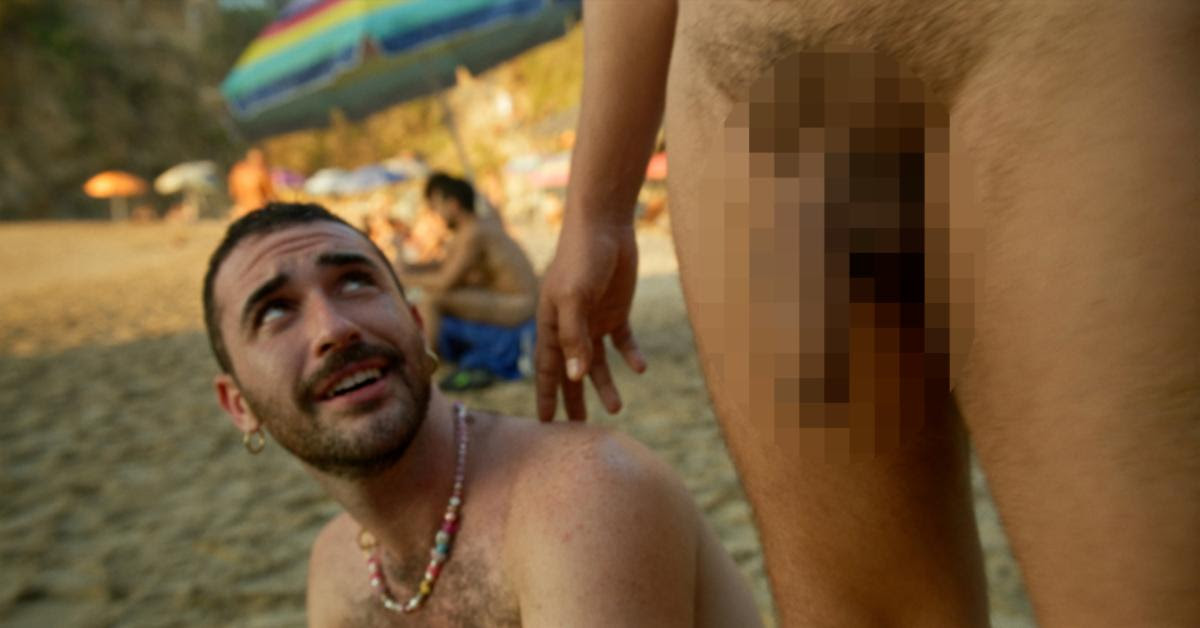
From its hilarious use of social media montages to the oversized white Telfar bag that seems to almost swallow one of its characters whole, Sebastián Silva’s Rotting in the Sun is the kind of film that would be best served by a review comprised entirely of emojis. And I mean that as the highest of compliments. There isn’t a single frame in the film that hasn’t been meticulously manicured in order to achieve what social media tries to do: create a vision of uniqueness while relishing in manufactured mundanity. That Silva achieves to both criticize the overuse of online personas (particularly in the white gay world) while becoming a piece meant to be meme-d and TikTok-ed into oblivion is truly remarkable. – Jose S. (full review)
Invisible Beauty (Bethann Hardison, Frédéric Tcheng; Sept. 15)
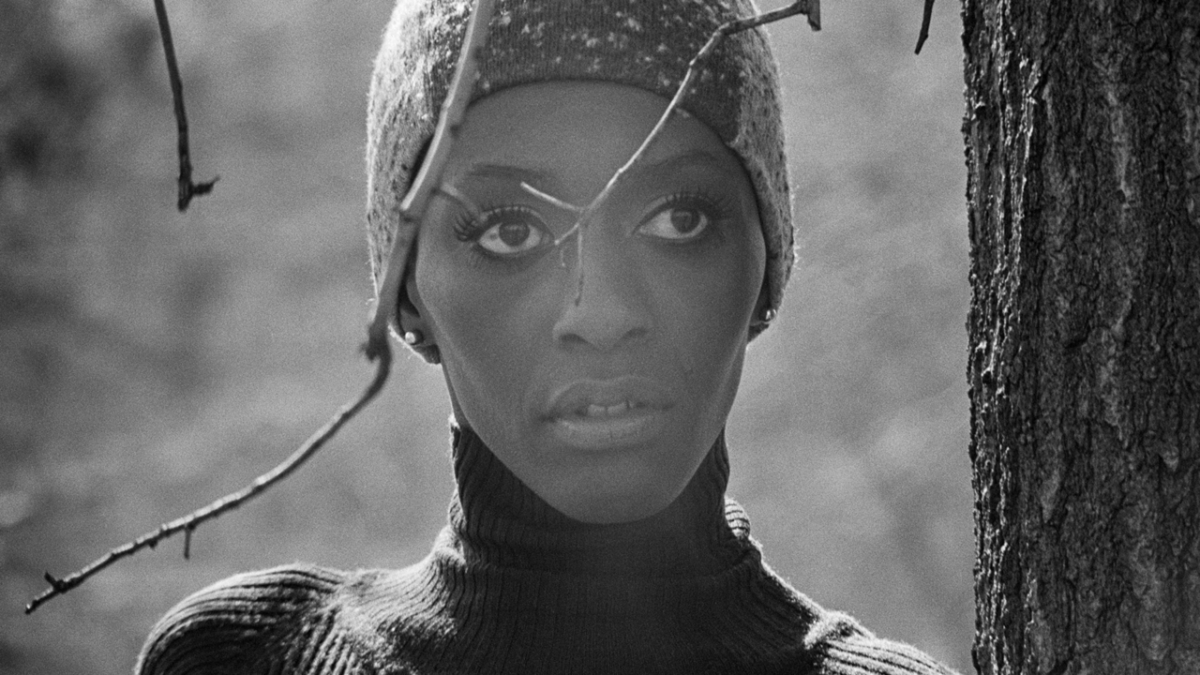
With every step she took on the catwalk, Bethann Hardison broke new ground. She did it while strutting in Chester Weinberg’s A-line skirts across the private showrooms of Manhattan’s garment district, where clients believed her to be “out of line.” She did it while dazzling audience members in Versailles in 1973, where she showed Europeans that girls of color brought personality to the runway and were not just human clothes-hangers. She did it ferociously, defiantly, and as shown in the documentary Invisible Beauty, she did it without ever planning to. – Jose S. (full review)
Cassandro (Roger Ross Williams; Sept. 15 in theaters and Sept. 22 on Prime Video)
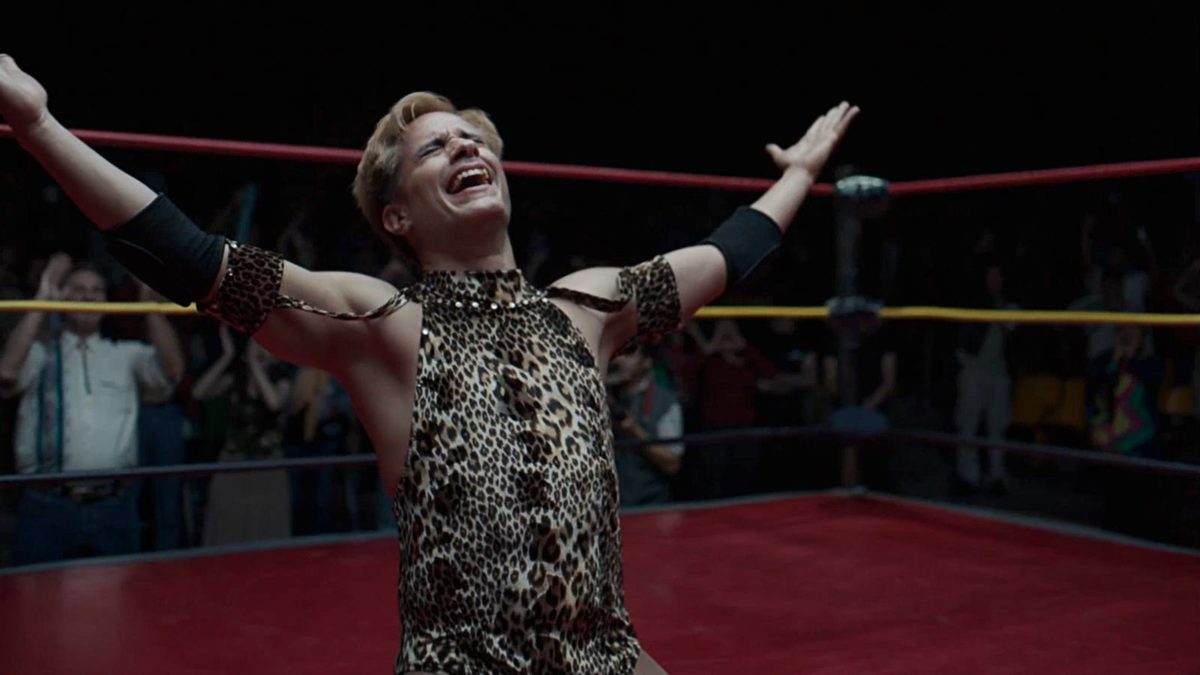
Rather than reverting to a traditional biopic structure––i.e. a greatest hits (and losses) in someone’s life––Williams and co-screenwriter David Teague open almost in media res as we meet Saúl (Gael García Bernal), a wide-eyed young man who is head over heels in love with lucha libre. He spends his days crafting costumes to wrestle in and helping his mother Yocasta (a magnificent Perla de la Rosa) who does laundry and clothes-mending for locals. Unlike her namesake from Greek mythology, Yocasta dreams of nothing but a wonderful future for her adoring son, reassuring him he will make “a man very happy someday.” – Jose S. (full review)
Remembering Every Night (Yui Kiyohara; Sept. 15)

One of the most intriguing, well-accomplished debuts I saw back at New Directors/New Films in 2018 was Yui Kiyohara’s mysterious drama Our House. The Japanese director returned to the festival this year with Remembering Every Night, a serenely beautiful and humorous ode to summer living near Tokyo following the journeys of a few women. Shot by Yukiko Iioka (Wheel of Fortune and Fantasy)––like Ryusuke Hamaguchi, Kiyohara is also a student of Kiyoshi Kurosawa––the Berlinale selection was picked up by KimStim for a theatrical release starting this month, alongside Our House. – Jordan R.
El Conde (Pablo Larraín; Sept. 15 on Netflix)
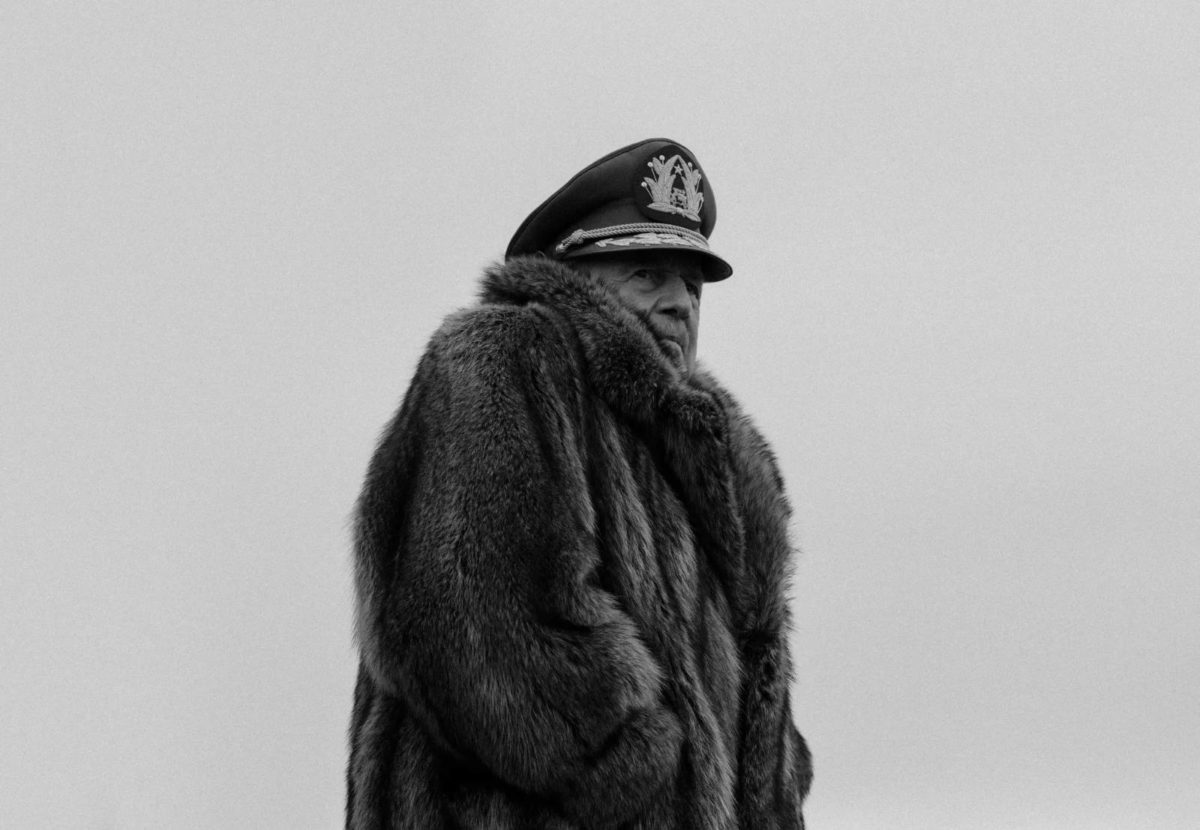
As he bounces back and forth between English-language projects and Chilean features, Pablo Larraín is following Spencer with El Conde, shot by the great Ed Lachman and which imagines Chilean dictator Augusto Pinochet (Jaime Vadell) as an aged vampire who, after 250 years in this world, has decided to die once and for all, due to ailments brought about by his dishonor and family conflicts. Check back for our review from the Venice Film Festival as Larraín preps to kick off production on his Maria Callas biopic starring Angelina Jolie.
Flora and Son (John Carney; Sept. 22 in theaters and Sept. 29 on Apple TV+)
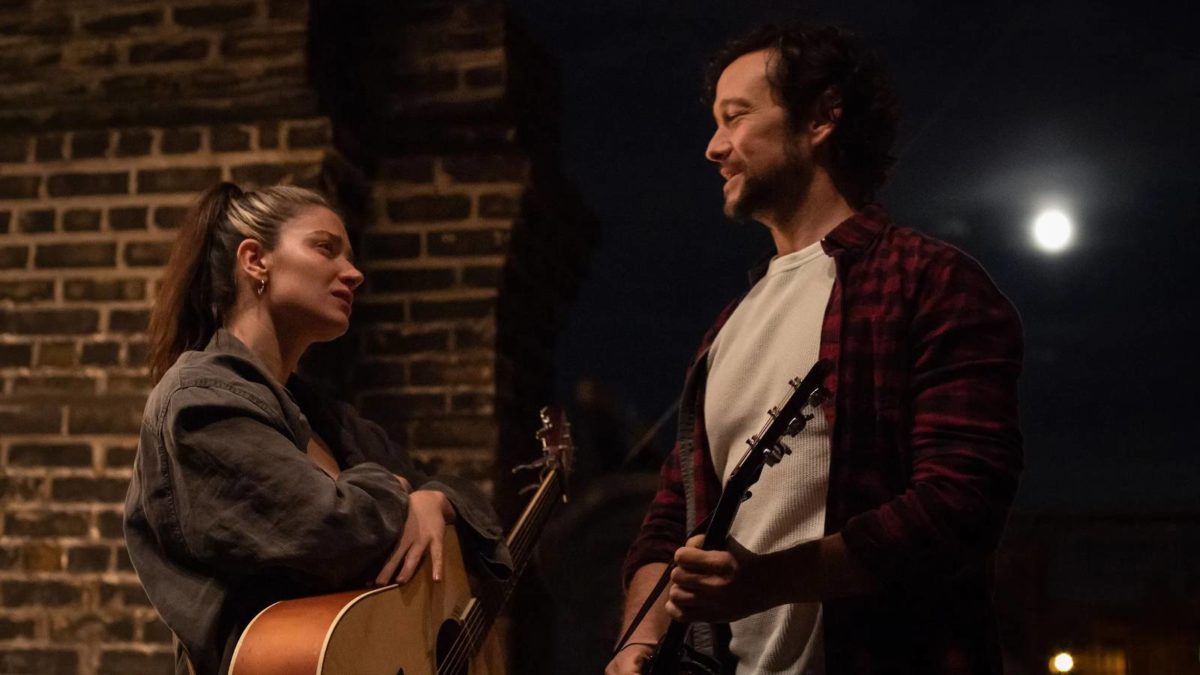
The career of Once and Sing Street director John Carney is a curious one, reiterating the same theme in each of his most notable movies: the power of music to heal emotional wounds and reconnect broken bonds. As his latest feel-good musical dramedy Flora and Son proves, he’s got this simple yet winsome formula down pat. Despite the machinations to tug each heartstring and coerce each smile being apparent from a mile away, Carney’s lively energy, flippant humor, and embrace of earnestness makes his latest work sing. – Jordan R. (full review)
The Wonderful Story of Henry Sugar (Wes Anderson; Sept. 27)
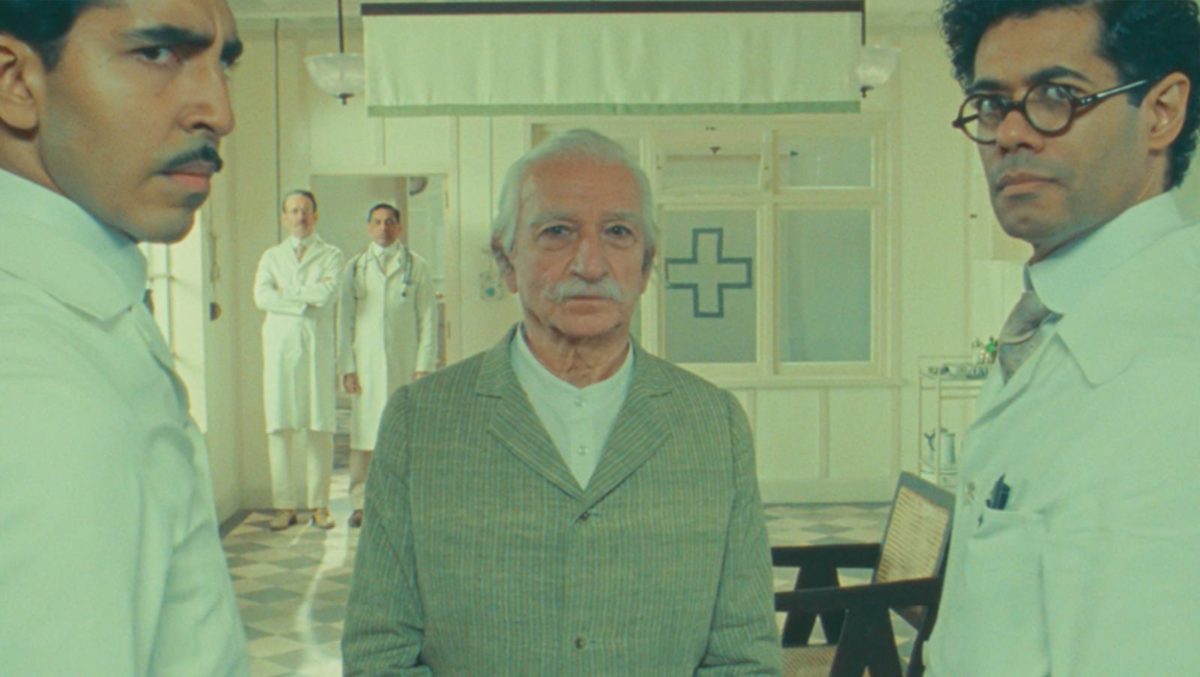
While Wes Anderson’s first film of the year received quite a blitzed-out marketing campaign, less is known about his second Roald Dahl adaptation, which brings together Benedict Cumberbatch, Ralph Fiennes, Dev Patel, Ben Kingsley, Rupert Friend, and Richard Ayoade. Made up of four stories, the first of which runs about 40 minutes and debuts at Venice this year followed by a Netflix release, but here’s hoping Netflix debuts them all later this fall. For more insight on the project, read our extensive interview with cinematographer Robert Yeoman. – Jordan R.
The Creator (Gareth Edwards; Sept. 29)

In a tentpole landscape painfully barren of original stories, we’ve been long-anticipating Gareth Edwards’ first original film since his debut Monsters. After his foray into the Godzilla and Stars Wars franchises, this September will see the release of The Creator, formerly titled True Love. Starring John David Washington, Gemma Chan, Ralph Ineson, Allison Janney, and Ken Watanabe, the trailer reveals the film takes place in the future as humans are at war with artificial intelligence. With massive-looking setpieces bearing a grounded, practical feel, this kind of offering seems sorely needed in our current Marvel-ized, green-screen hellscape of entertainment options. – Jordan R.
Fair Play (Chloe Domont; Sept. 29 in theaters and Oct. 13 on Netflix)
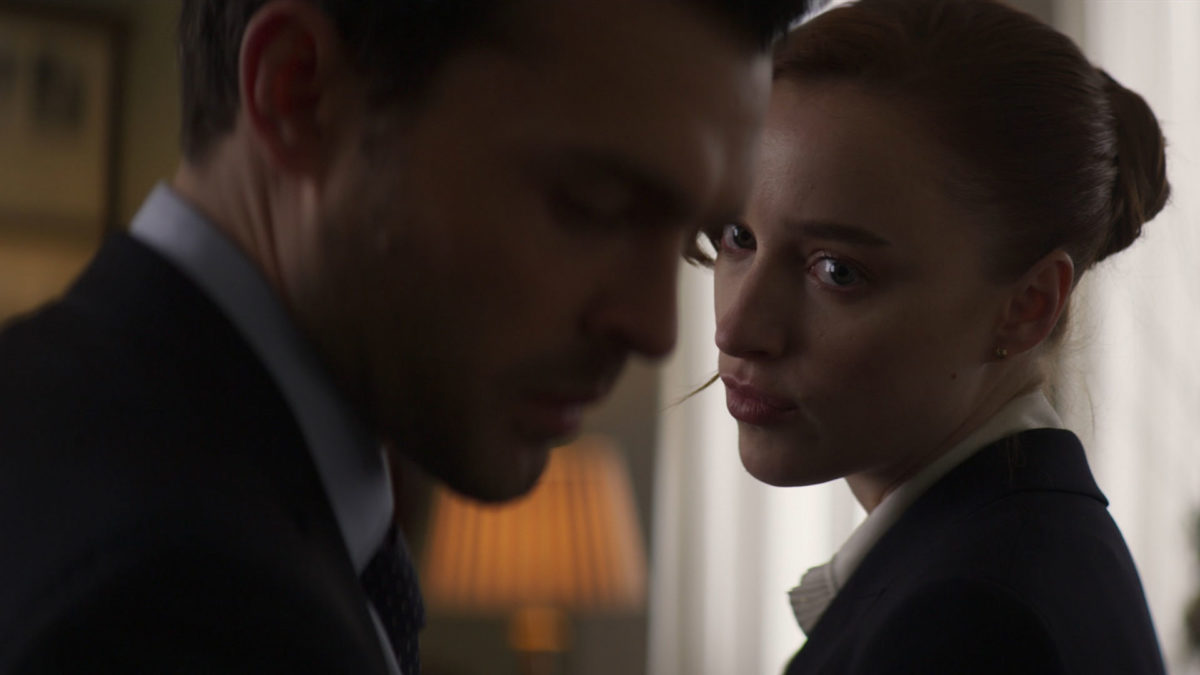
Emily (Phoebe Dynevor) and Luke (Alden Ehrenreich) are madly in love. Engendering sex at every possible opportunity, their passion is a burning one and, after a quasi-impromptu engagement, their bond has become even deeper. Heading off to work from their NYC Chinatown apartment, though, something feels off. We quickly learn they are both low-level analysts at an elite, high-pressure financial firm and, due to company policy forbidding such a romance, their relationship must be kept a secret from everyone else. Complications ensue when a promotion is up for grabs, and this secrecy plants the seed for what festers into a gripping thriller that juggles power and gender dynamics in ways both cuttingly real and gleefully absurd. Beginning with a Margin Call-esque icy slickness in this kill-or-be-killed financial world before morphing into Adrian Lyne-style battle-of-the-sexes camp, Chloe Domont’s feature debut Fair Play cuts deep even as it comes dangerously close to careening off the cliff of plausibility with a screenplay that dips into sophomoric. – Jordan R. (full review)
Strange Way of Life (Pedro Almodóvar; Oct. 4)
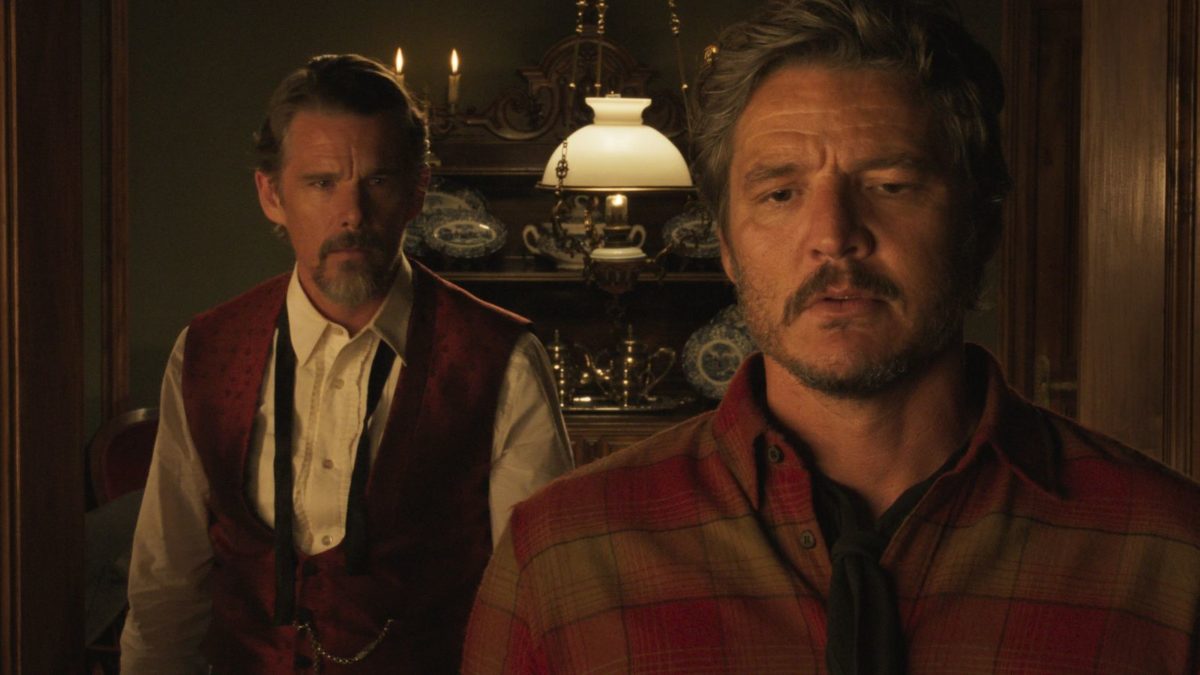
The only short film on the list, Pedro Almodóvar’s latest work is a 30-minute western melodrama starring Ethan Hawke and Pedro Pascal as their characters reunite after a 25-year absence. Marking the Spanish master’s first foray into the genre, it’ll thankfully get a substantial theatrical release from Sony Pictures Classics, paired with his Tilda Swinton-led short The Human Voice. As one may recall, Almodóvar was attached to Brokeback Mountain some decades back before Ang Lee took over, but now the director finally got to make a gay western with this Saint Laurent-supported project. – Jordan R.
Killers of the Flower Moon (Martin Scorsese; Oct. 6)
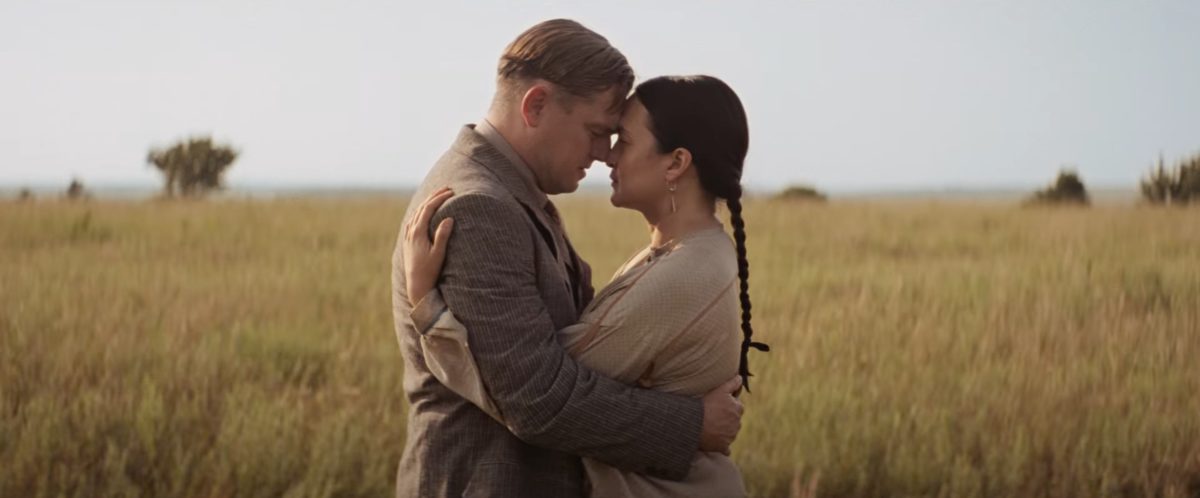
Martin Scorsese’s adaptation of Killers of the Flower Moon makes no mistake about who is at the center of its tragedy: the Osage Nation. Shot primarily on location on the reservation in Oklahoma, the film opens and closes with Osage ceremonies, one mourning death and the other celebrating life, in that order. The story in-between, however, takes the opposite arc, tracing some of Scorsese’s most memorable characters through a period of gut-wrenching prosperity that was always bound to rot. – Luke H. (full review)
Foe (Garth Davis; Oct. 6)
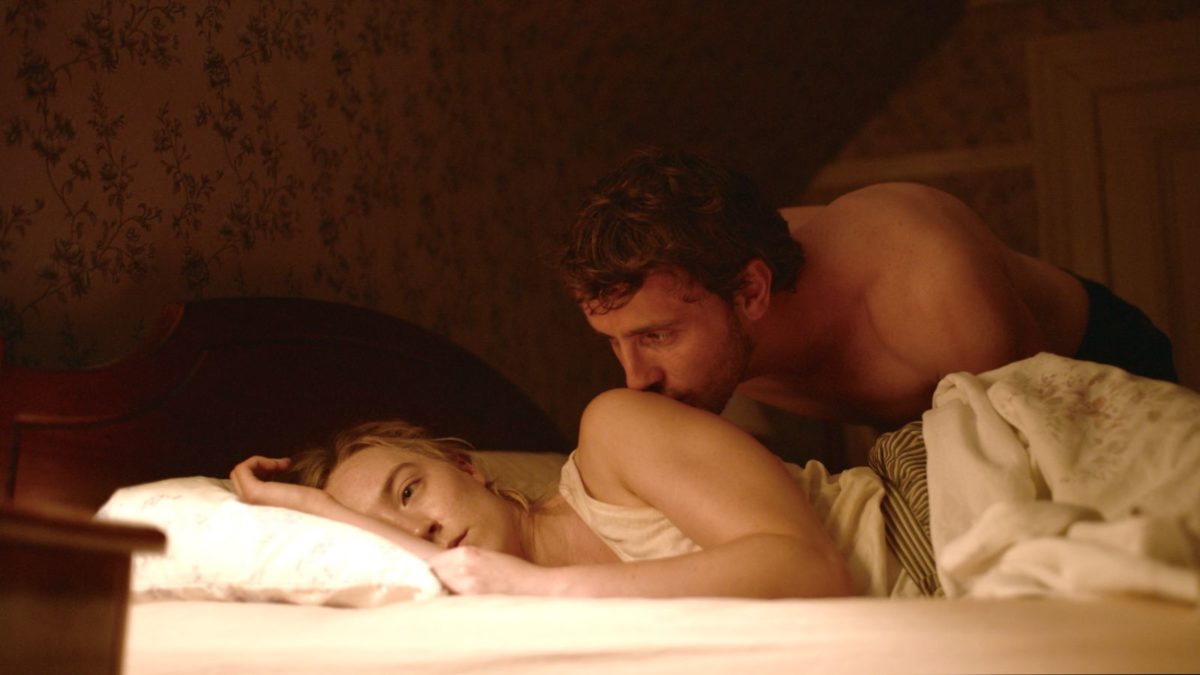
Quite the formidable screen pairing, Paul Mescal and Saoirse Ronan lead what sounds like Garth Davis’ most compelling film yet. As co-scripted by I’m Thinking of Ending Things author Iain Reid and based on his own novel, the sci-fi drama Foe follows the actors as a couple in the midwest in the year 2065. A stranger arrives to promise them a better future in a world ravaged by climate change. Having not yet red Reid’s 2018 novel, I’m curious what surprises are in store. – Jordan R.
Anatomy of a Fall (Justin Triet; Oct. 13)

The ensuing days after a romantic breakup, even if it isn’t a cataclysmic one, are an uncanny time. Perhaps once the spell of verbal conflict and sparring’s ceased, suddenly your sole companion for the most intimate thoughts is yourself once again, but it’s an opportune moment for contemplation: how did it really go wrong? Or, can I be honest with myself and acknowledge my own partial responsibility for its demise? For Sandra (Sandra Hüller) and Samuel (Samuel Theis), the key onscreen and offscreen players in Anatomy of a Fall, are enduring this quagmire, although their inevitable breakup was enforced––the latter has just tragically died. – David K. (full review)
Divinity (Eddie Alcazar; Oct. 13)
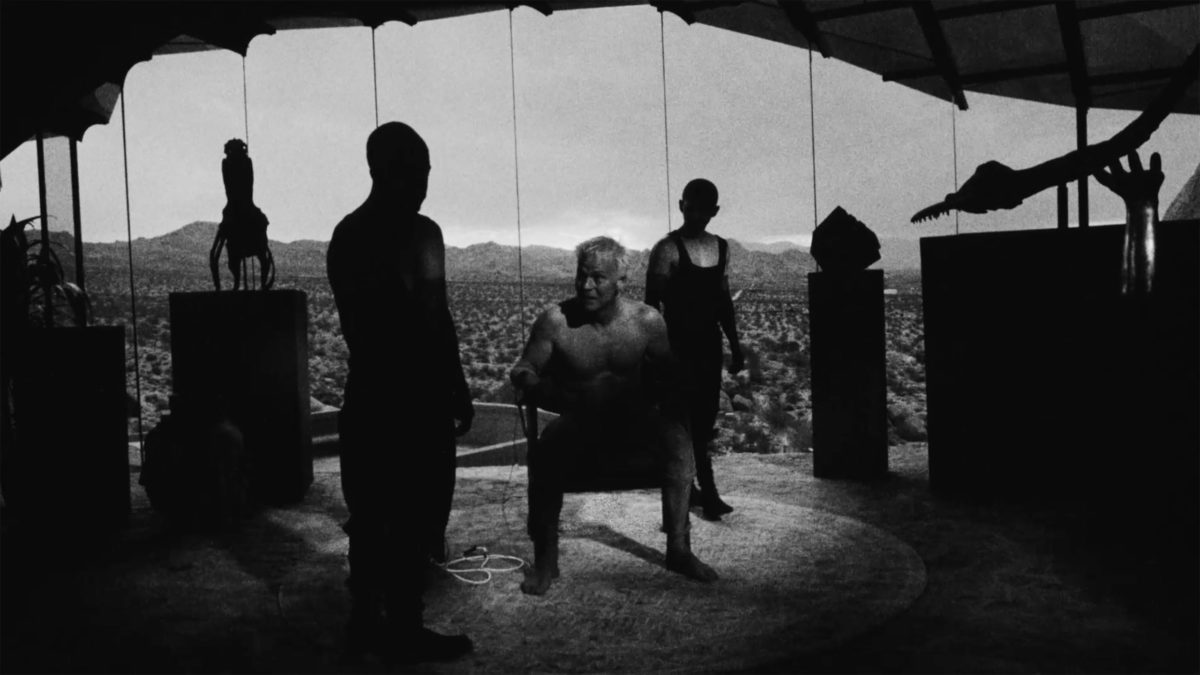
Divinity can best be described as a “brain trip,” a film that acts as an upgraded ’80s B-movie. Eddie Alcazar’s futuristic, violent drama follows two brothers as they hold a scientist, the man who helped invent an everlasting-life drug called Divinity, hostage in his mansion. At times it’s beautiful to watch, shot in a shadow-focused black-and-white and set amongst a deserted landscape recalling Mad Max. Other times it’s grotesque, highlighting the disgusting physical and financial greed of a drug that’s been flooded across the world. Always, Acalazar’s film is inventive and singular. – Michael F. (full review)
Silver Dollar Road (Raoul Peck; Oct. 13 in theaters and Oct. 20 on Prime Video)
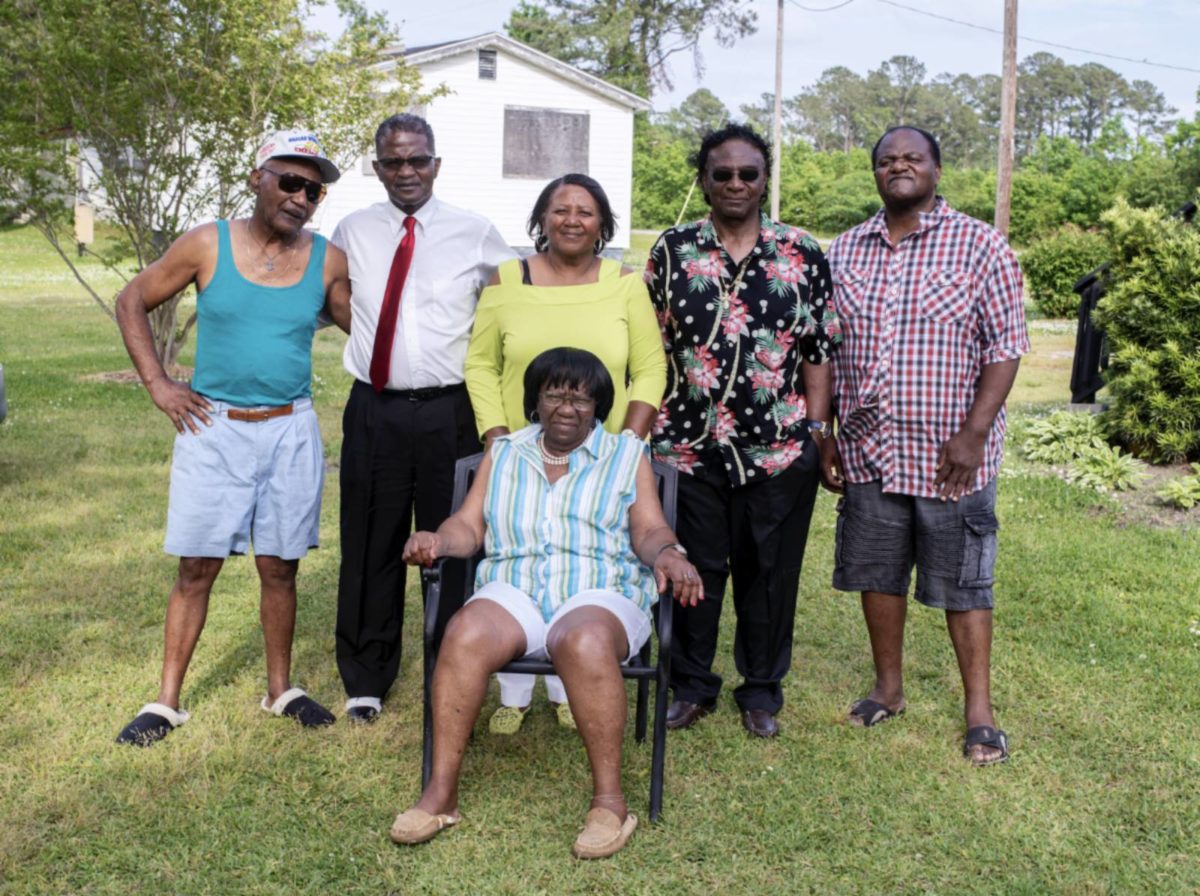
Following his ambitious series Exterminate All the Brutes, Raoul Peck is back with a new documentary this fall. Silver Dollar Road follows “the story of the Reels family as told by the matriarch Mamie Reels Ellison and her niece Kim Renee Duhon, two fierce and clear-eyed women bending to safeguard valiantly their ancestors’ land and their brothers and uncles Melvin and Licurtis, who were wrongfully imprisoned for eight years – the longest sentence for civil contempt in North Carolina history. This documentary, based on the 2019 ProPublica article, highlights the covert ways the legal system has been exploited to keep Black land ownership fragile and the racial wealth gap growing.”
Once Within a Time (Godfrey Reggio & Jon Kane; Oct. 13)
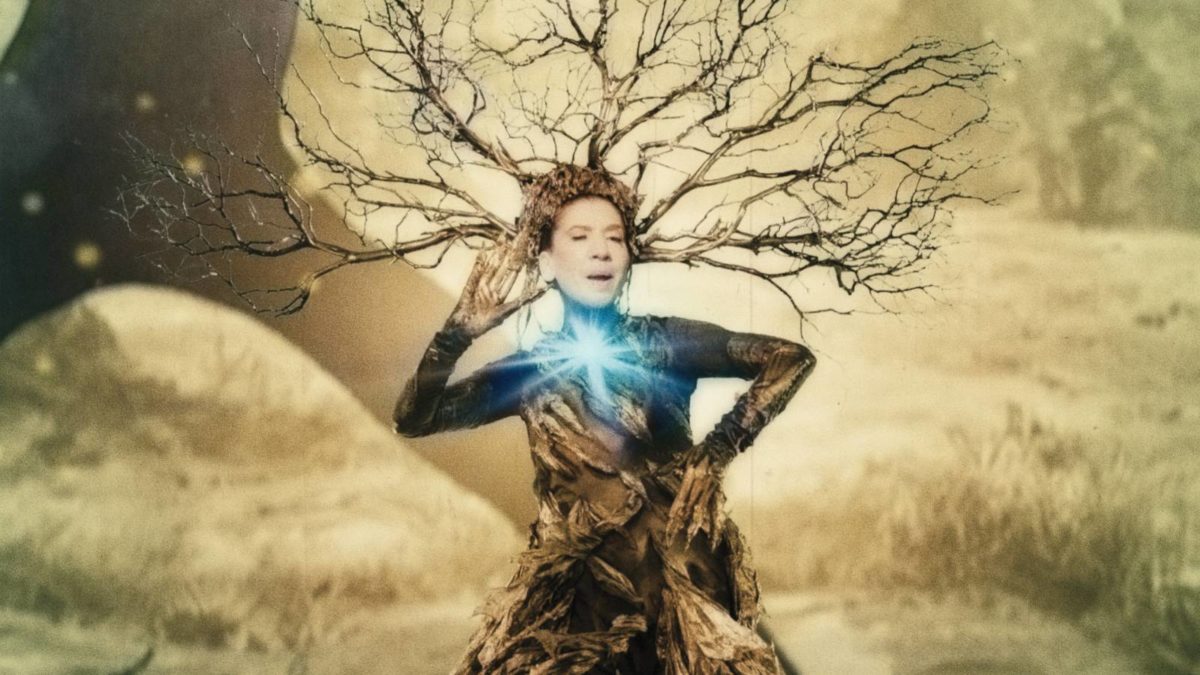
Godfrey Reggio, the legendary director of the Qatsi trilogy, is back with Once Within a Time, co-directed by Jon Kane. Featuring original music composed by Philip Glass with additional music and vocals by Sussan Deyhim, it has quite the synopsis: “a bardic fairy tale about the end of the world and the beginning of a new one, tinged with apocalyptic comedy, rapturous cinematography, unforgettable vistas, and the innocence and hopes of a new generation.”
The Delinquents (Rodrigo Moreno; Oct. 18)
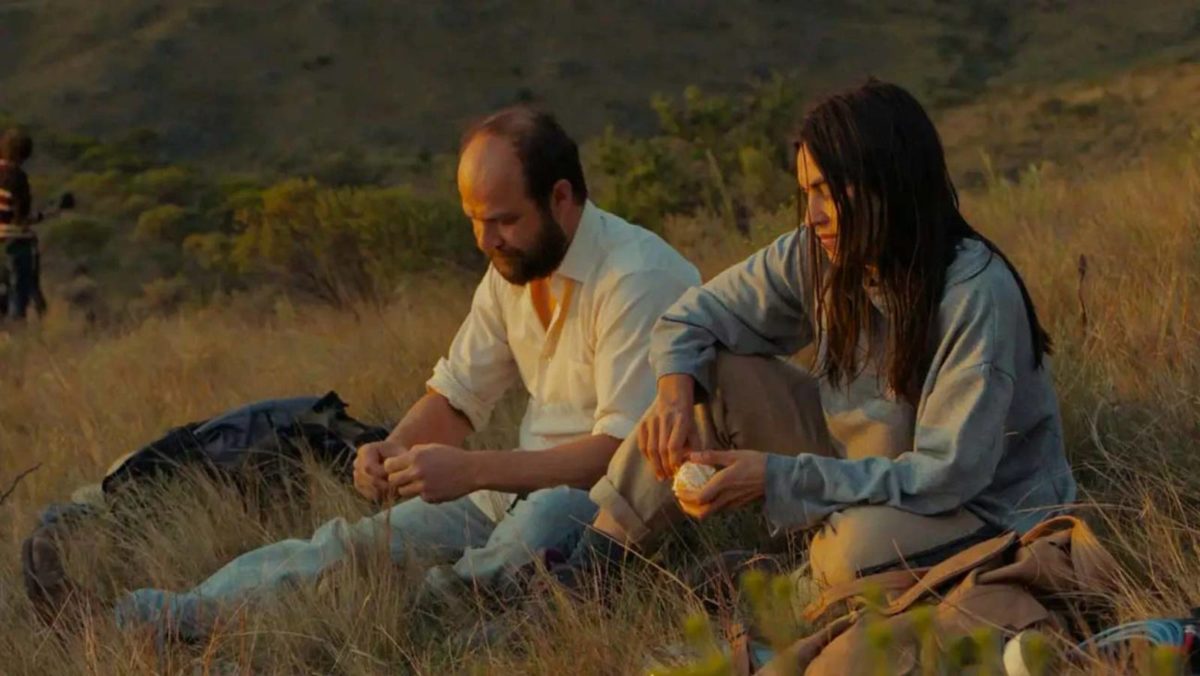
Near the halfway point of The Delinquents, a funny, existential epic from Argentina, a banker dips into an arthouse cinema. Though almost all the seats are free he can’t decide which one to choose. What’s the point of all those options, the film asks, if you’re always left wanting more? In another moment the elder statesman of a prison yard explains that the only advantage a cellmate holds over those outside is having all the time in the world to think. (What’s the point of freedom itself if you’re a slave to the algorithm?) “There wasn’t more freedom,” another man explains, reminiscing about an objectively worse era in Argentinian history, “but you could smoke anywhere.” – Rory O. (full review)
The Pigeon Tunnel (Errol Morris; Oct. 20)
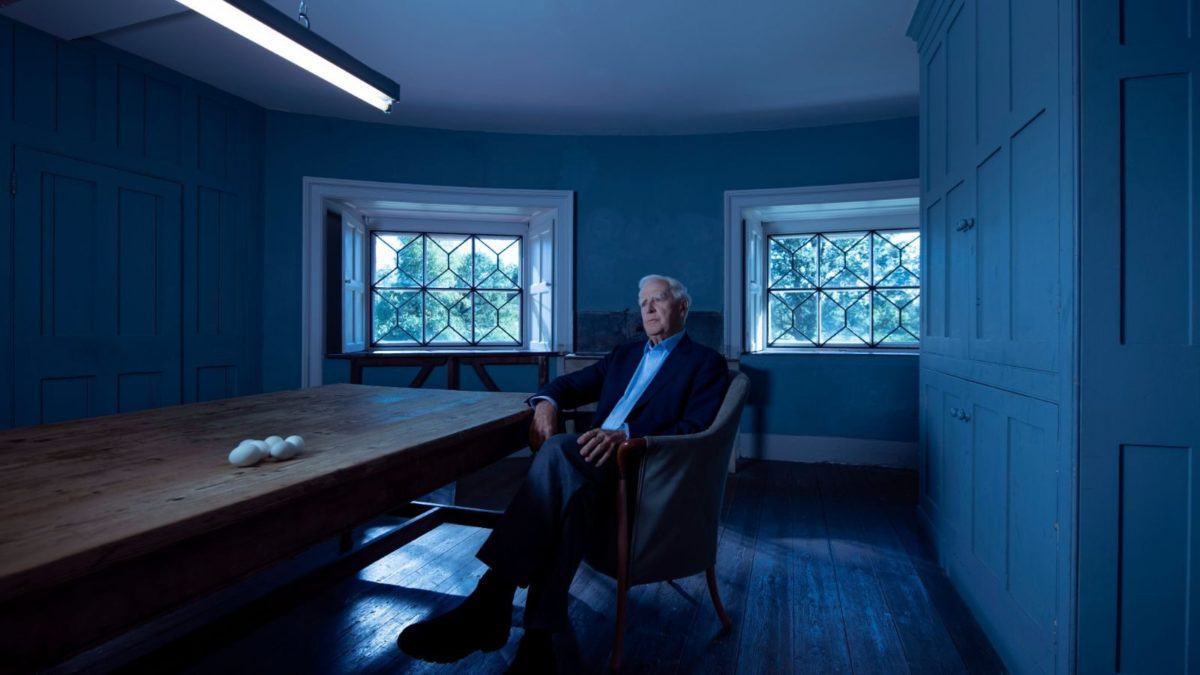
Before novelist John le Carré (aka former British spy David Cornwell) passed away in late 2020, he opened up about his thrilling, strange life to one of the greatest documentary filmmakers, Errol Morris. Playing at TIFF and NYFF before an Apple TV+ debut, the film is said to examine the thin line of fact and fiction between his reality and the well-informed stories he wrote, many of which made their way to screens. – Leonard P.
The Holdovers (Alexander Payne; Oct. 27)

After teaming for Sideways two decades ago, writer-director Alexander Payne and actor Paul Giamatti have reunited for a new drama. The Holdovers, which is set for TIFF and, likely, a Telluride debut, follows a curmudgeonly instructor (Giamatti) at a New England prep school who is forced to remain on campus during Christmas break to babysit the handful of students with nowhere to go, forming a bond with one. While I seemed to be among the few that enjoyed the imagination of Downsizing, this dramedy certainly looks to be in a familiar groove for the director. – Jordan R.
Priscilla (Sofia Coppola; Oct. 27)
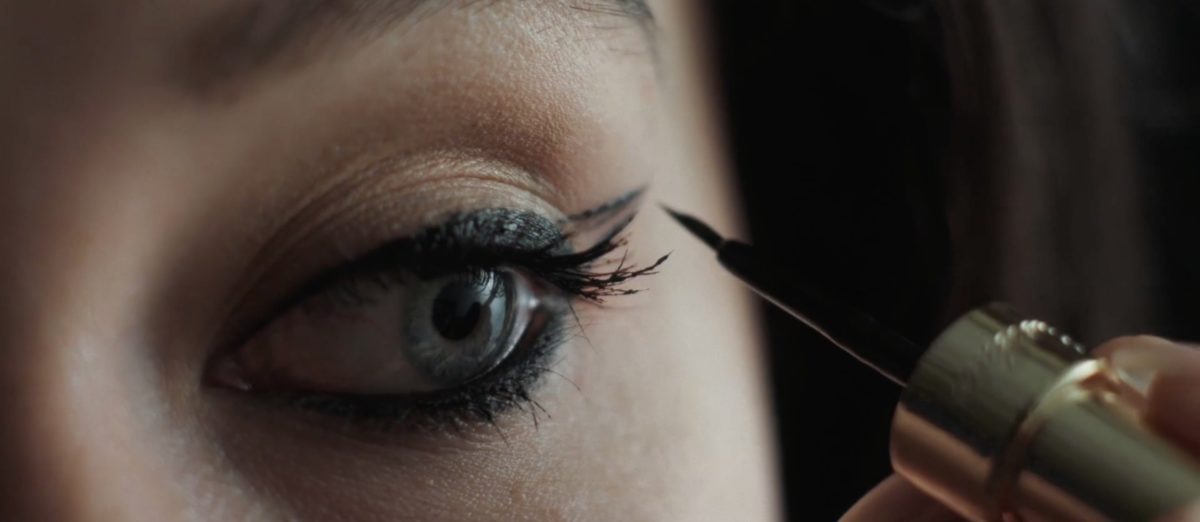
If Sofia Coppola’s last four projects haven’t quite lived up to her first four, her latest seems poised to be a strong return to form. Set for a major Venice Film Festival launch and then NYFF Centerpiece selection premiere, the director is capturing the life of Priscilla Presley as played by Cailee Spaeny. With Jacob Elordi as Elvis Presley, we imagine Coppola will dig into the complex nuances of their relationship in the kind of vein Baz Luhrmann simply wasn’t interested in. – Jordan R.
Fingernails (Christos Nikou; Oct. 27 in theaters and Nov. 3 on Apple TV+)
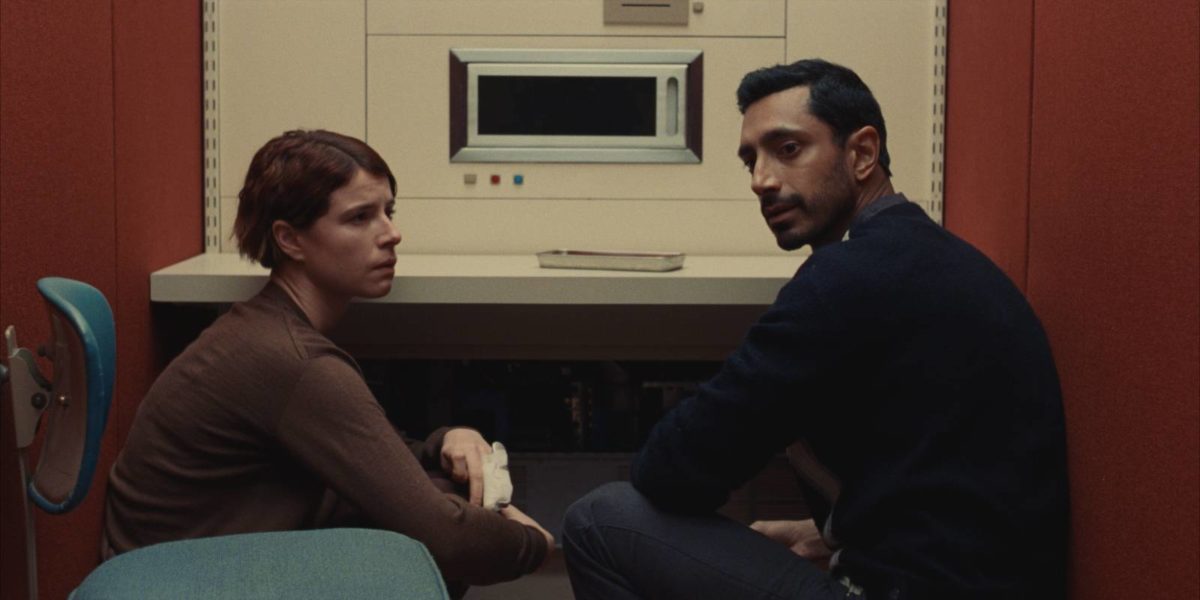
From Greek director Christos Nikou (Apples), this unconventional, hypnotic-sounding science-fiction film has the potential to offer a tangible insight into modern relationships. Centered on a young woman (Jessie Buckley) who begins to question if her partner truly loves her, Fingernails follows her as she signs up for a mysterious organization that aims to find the root cause of romantic love, becoming drawn to its enigmatic leader (Riz Ahmed) in the process. – Logan K.
The Killer (David Fincher; Oct. 27 in theaters and Nov. 10 on Netflix)
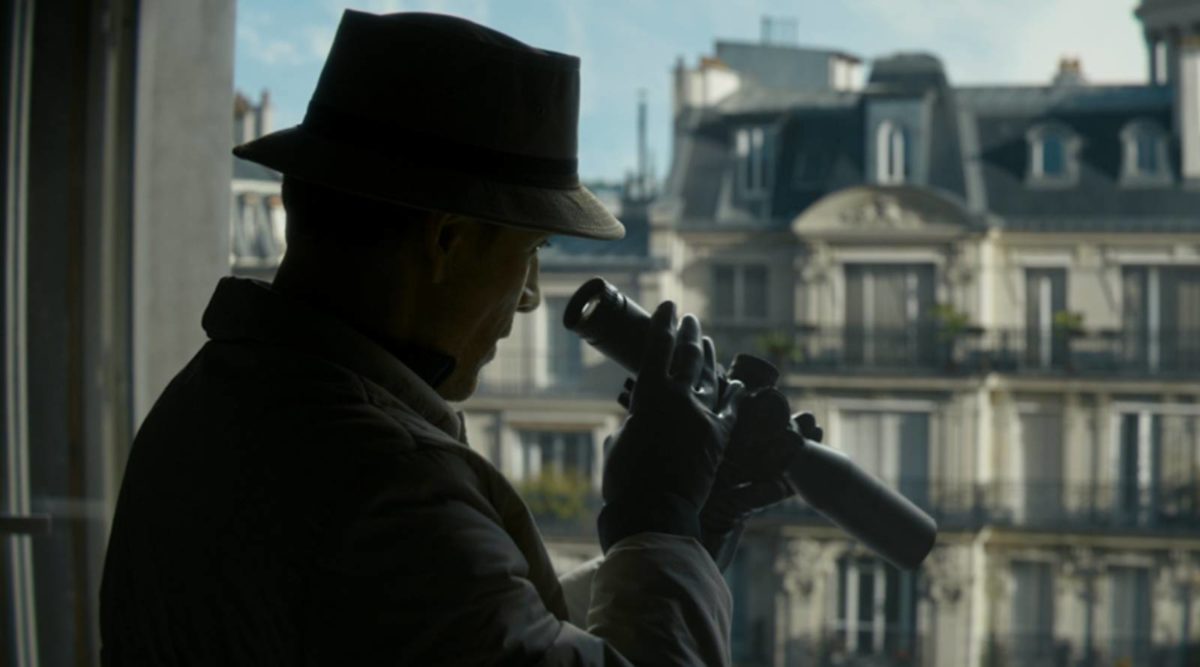
Following his black-and-white passion project Mank, David Fincher returns to the world of vibrant, slick thrillers with The Killer. An adaptation of Alexis Nolent’s graphic novel series, the Netflix neo-noir marks a reteam for Fincher with his Se7en screenwriter Andrew Kevin Walker, with Michael Fassbender leading the film as a cold-blooded assassin, joined by Tilda Swinton. Set for a Venice (and Venice only) premiere, it’ll arrive on Netflix in early November. – Jordan R.
American Fiction (Cord Jefferson; Nov. 3)
Whether it’s the worlds of Wes Anderson, Westworld, Batman, or even Source Code, Jeffery Wright’s presence is an unforgettable one. He’s now getting a well-deserved leading role in American Fiction, directed by Cord Jefferson (Succession, Watchmen), adapted from Percival Everett’s novel Erasure. Set for a TIFF world premiere followed by a theatrical release this November, the film follows a writer in “a wicked satire about the commodification of marginalized voices and a portrait of an artist forced to re-examine his integrity.” While not much is known about the project, we expect it to be one of the most talked-about films of the festival. – Jordan R.
What Happens Later (Meg Ryan; Nov. 3)
While her directorial debut Ithaca arrived nearly a decade ago with not too much fanfare, Meg Ryan is back this fall in a genre she knows well. The rom-com What Happens Later follows ex-lovers Bill (David Duchovny) and Willa (Meg Ryan), who get snowed-in at a regional airport overnight. “Indefinitely delayed, Willa, a magical thinker, and Bill, a catastrophic one, find themselves just as attracted to and annoyed by one another as they did decades earlier. But as they unpack the riddle of their mutual past and compare their lives to the dreams they once shared, they begin to wonder if their reunion is mere coincidence, or something more enchanted,” the synopsis reads. While we haven’t even received a first look yet, hopefully we’ll get more news soon as the release from Bleecker Street approaches. – Jordan R.
Orlando, My Political Biography (Paul B. Preciado; Nov. 10)
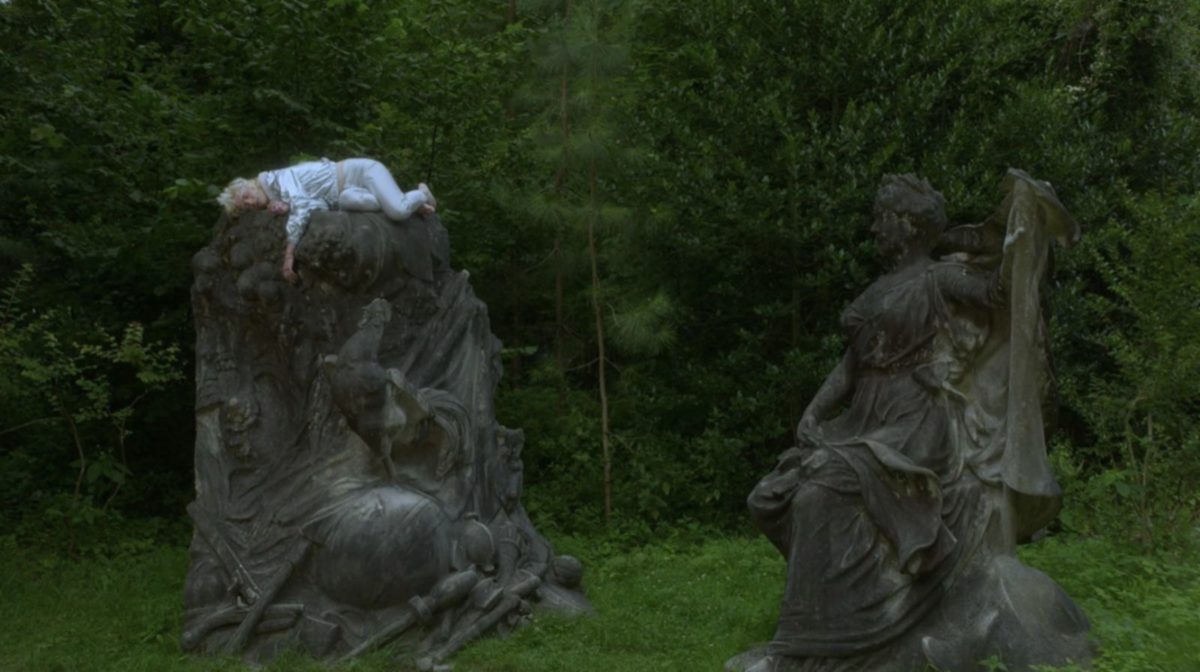
Orlando, My Political Biography, Preciado’s new work––and his first behind the camera––is the latest to tackle Woolf’s text and surely one of the most original to do so. It’s structured as both a correspondence—messages from the writer to Woolf—and a series of kaleidoscopic vignettes starring trans and non-binary people. In various ways––deeply heartfelt, often funny, occasionally repetitive but never less than joyous––the performers speak about their relationship with the text through personal experiences while, in voiceover, Preciado distills a life spent grappling with the novel (both as intrepid reader and discerning academic) into a poetic and philosophical treatise, providing a robust foundation for the more earnest emotions onscreen. – Rory O. (full review)
Dream Scenario (Kristoffer Borgli; Nov. 10)
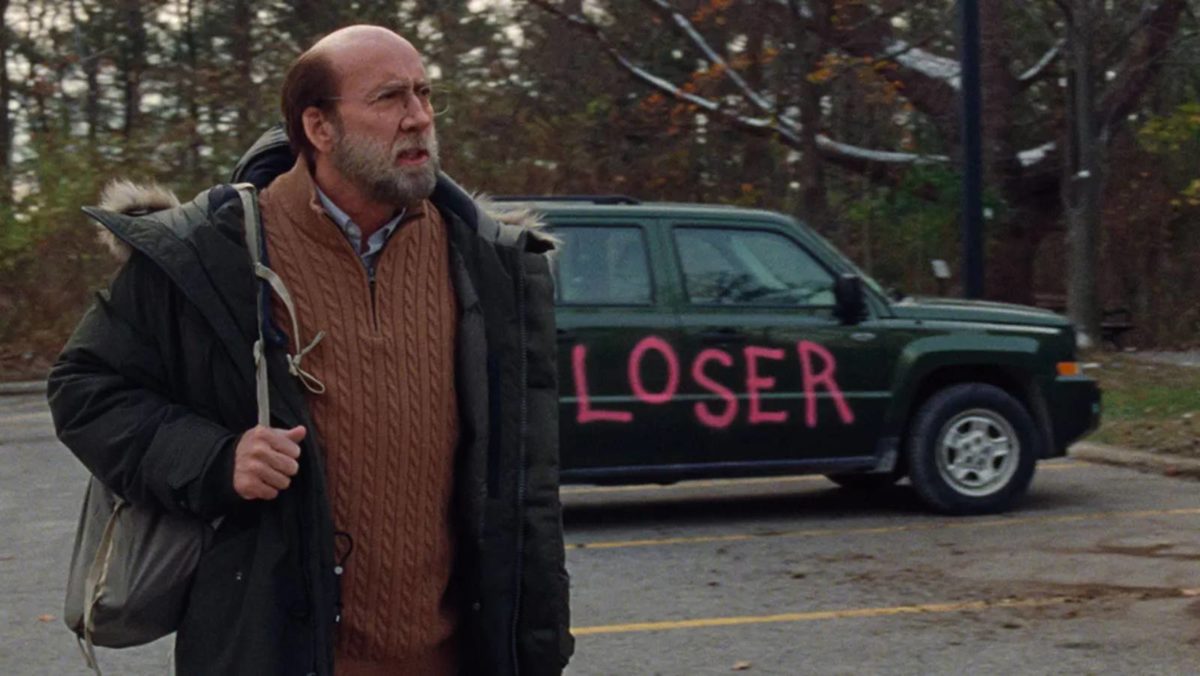
In a rare feat, Kristoffer Borgli is set to premiere his second U.S. release of the year after the jet-black Norwegian comedy Sick of Myself. Teaming him with Nicolas Cage, the Ari Aster-produced Dream Scenario has quite the intriguing premise: “a schlubby professor, who never made it, becomes an overnight celebrity after appearing in everyone’s dream.” While it sounds firmly in Charlie Kaufman territory, a place Cage knows well, we imagine Borgli will get quite dark with this A24 production. – Jordan R.
May December (Todd Haynes; Nov. 17 in theaters and Dec. 1 on Netflix)
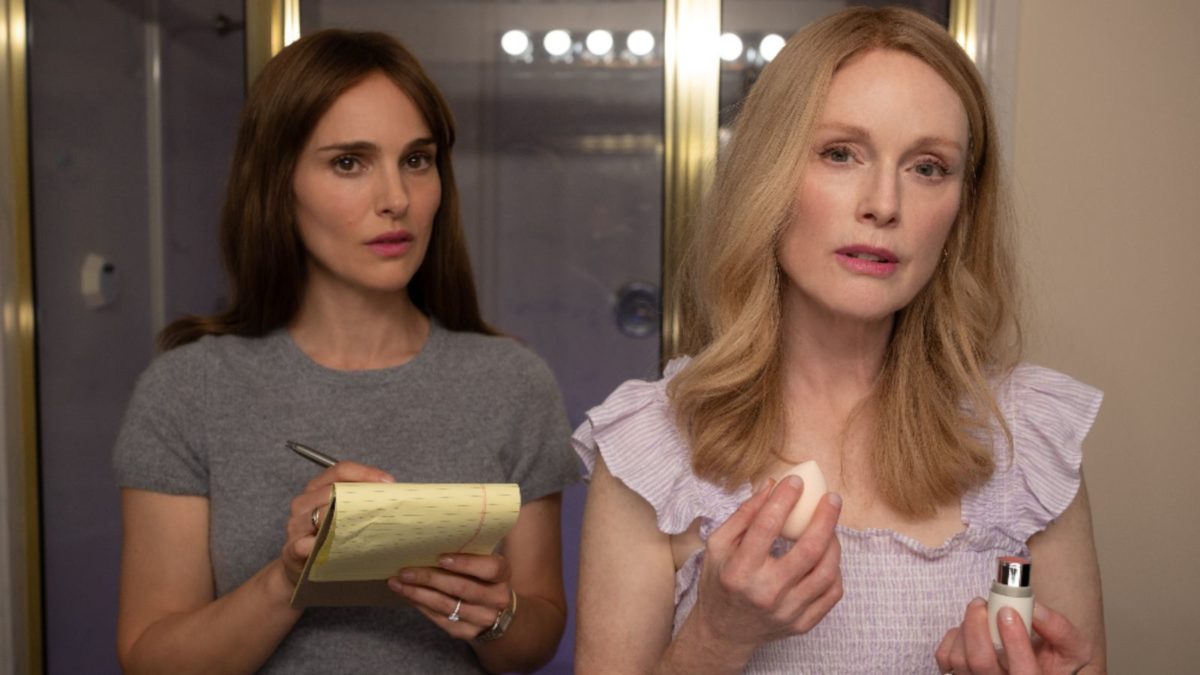
Todd Haynes’ May December pulls from a popular ’90s scandal wherein 34-year-old teacher Mary Kay Letourneau had sex with her 12-year-old student, birthed their baby while awaiting her sentence, went to prison, got parole, broke a restraining order to see him again, went back to prison, had another child behind bars, got out after seven years, married the student, raised a family with him, and was eventually left by him 14 years into their marriage. It’s not the exact story of May December, but the differences are negligible––twins instead of children a year apart, some shuffled details. And most importantly, the addition of Natalie Portman. – Luke H. (full review)
Fallen Leaves (Aki Kaurismäki; Nov. 17)
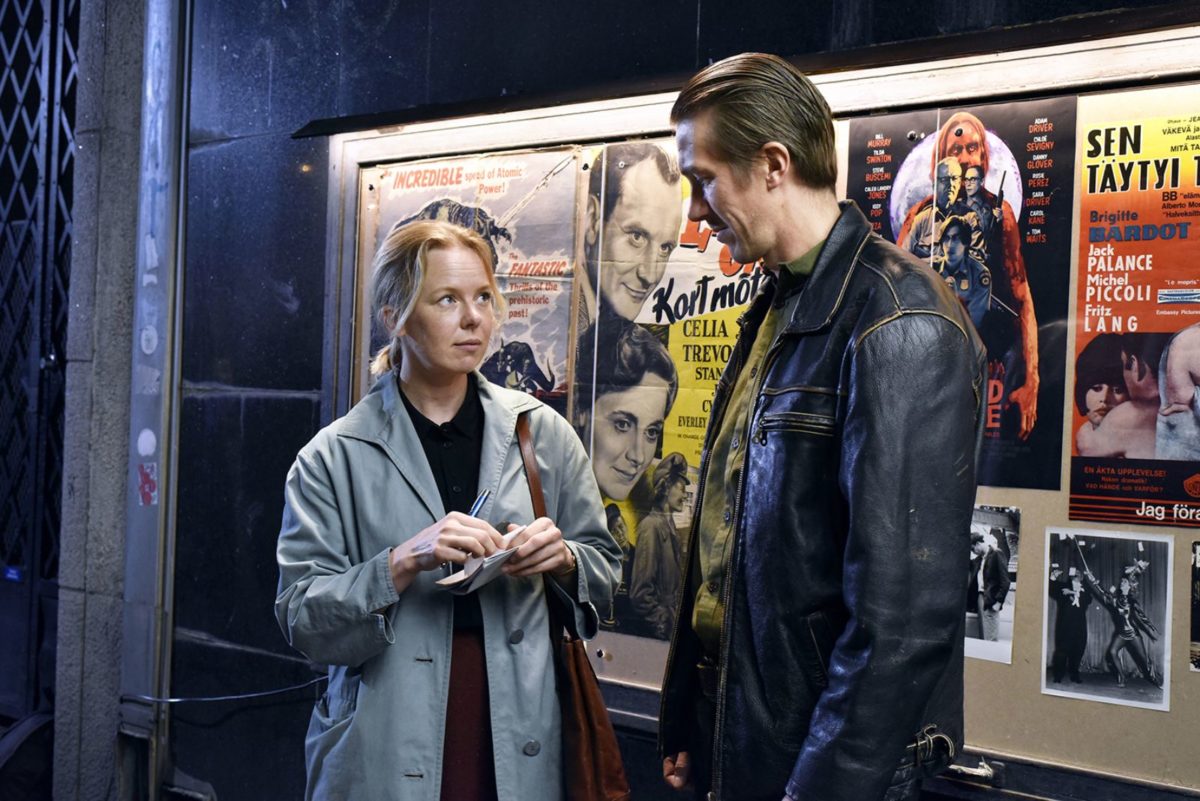
In 2006, Aki Kaurismäki was asked what he felt young filmmakers lacked. His response was almost Cartesian: “Humility,” the director suggested, “Above all, it is necessary to forget oneself.” The Finnish auteur returns with Fallen Leaves, a charming, moving, bittersweet romance packed with all the lovely things we’ve come to associate with him after four decades. The locations and colors still come in admirable shades of mustard and pea soup––as do the characters and their moods. As a film, Fallen Leaves could hardly be simpler––two people living separate, lonesome lives meet and maybe fall in love––but there is beauty in that simplicity and, as ever, Kaurismäki’s characters live far richer inner lives. – Rory O. (full review)
Menus-Plaisirs Les Troisgros (Frederick Wiseman; Nov. 22)

Four hours of Frederick Wiseman capturing the inner workings of a three-star Michelin restaurant in France is arguably the logline for the perfect movie, so not much more needs to be said about this one. Playing at Venice, TIFF, NYFF––there’s no documentary we’re anticipating more this year. – Jordan R.
Napoleon (Ridley Scott; Nov. 22)
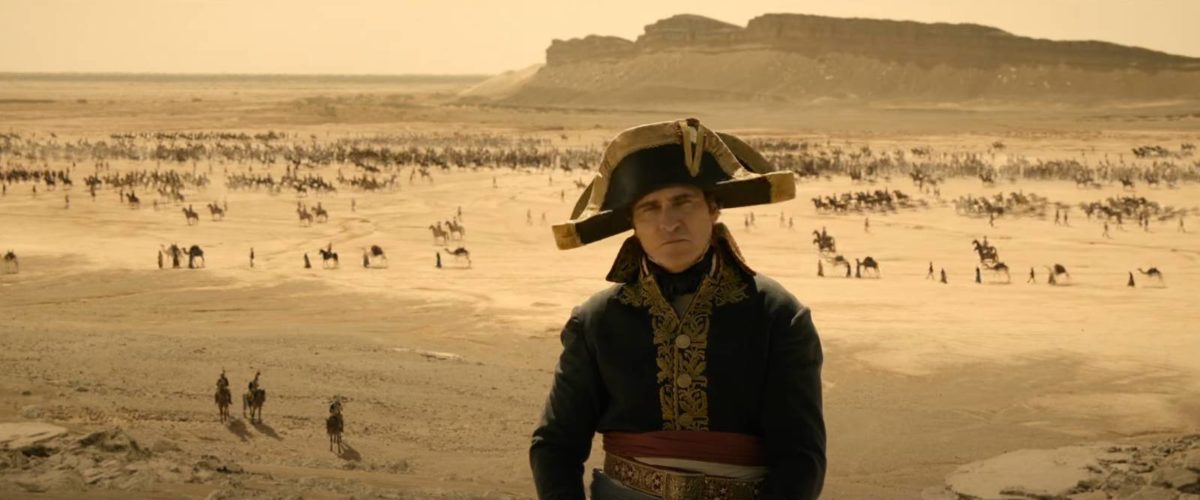
Ridley Scott was already in production on his Gladiator sequel before the strike commenced, but it’s not the only epic coming soon from the director. His Napoleon Bonaparte biopic, led by Joaquin Phoenix, seems to be skipping fall festivals in favor of a massive theatrical bow. A perennially overlooked talent for his adaptability across genres, Scott usually does well in this bombastic historical epic mode (Exodus aside) and we look forward to his reunion with one of the most engaging actors working today. – Jordan R.
Saltburn (Emerald Fennell; Nov. 24)
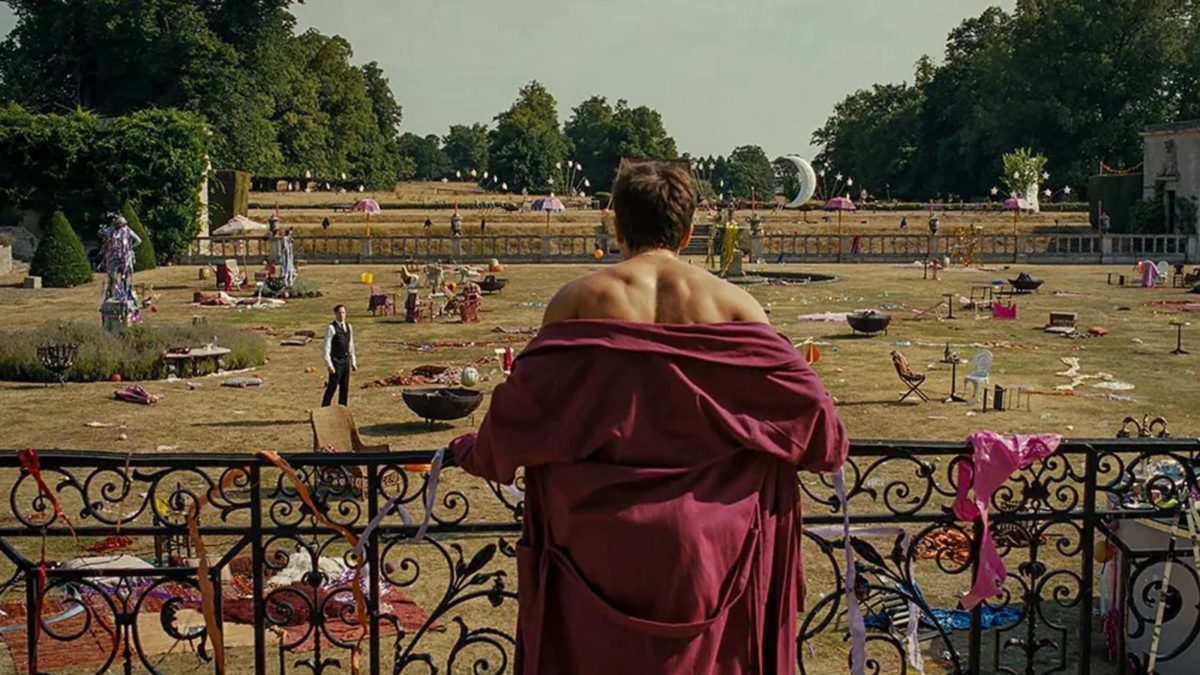
Despite its awards acclaim, the critical response to Emerald Fennell’s Promising Young Woman was a bit all-over-the-place. The Oscar winner is now back this year with her follow-up Saltburn, which is curiously missing from a number of major fall festivals, but we’re still intrigued to see Barry Keoghan lead this tale of young infatuation and eccentric living. It’s rumored for a Telluride premiere, so expect reactions soon. – Jordan R.
Maestro (Bradley Cooper; Nov. 22 in theaters and Dec. 20 on Netflix)
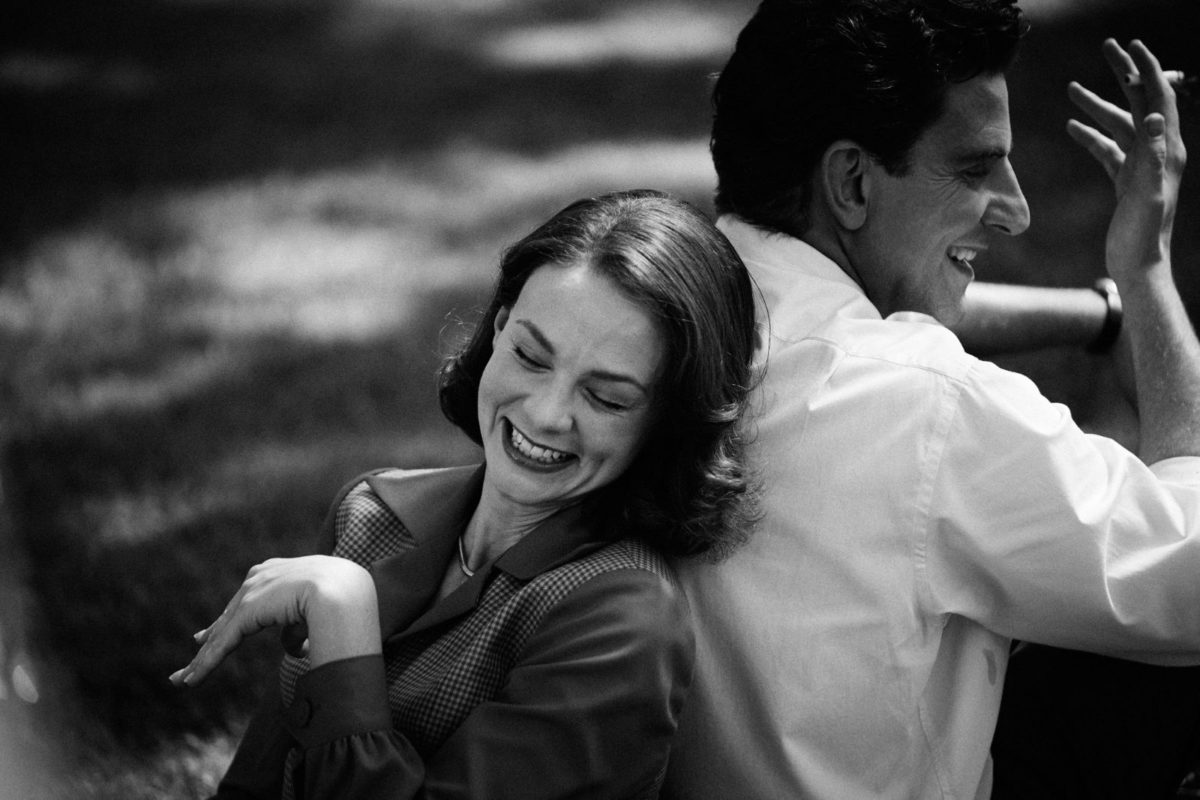
Five years after his hit directorial debut A Star Is Born, few fall films are arriving with the illustrious pedigree of Bradley Cooper’s sophomore feature Maestro. Produced by both Martin Scorsese and Steven Spielberg, the biopic on the life of composer-conductor Leonard Bernstein stars Cooper, who co-wrote the script with Josh Singer (First Man, Spotlight), as well as Carey Mulligan, Matt Bomer, Maya Hawke, and Sarah Silverman. While the film has already stirred up a bit of controversy, we imagine the conversation will shift to something more artistically interesting once, well, people have actually seen it. – Leonard P.
Eileen (William Oldroyd; Dec. 1)
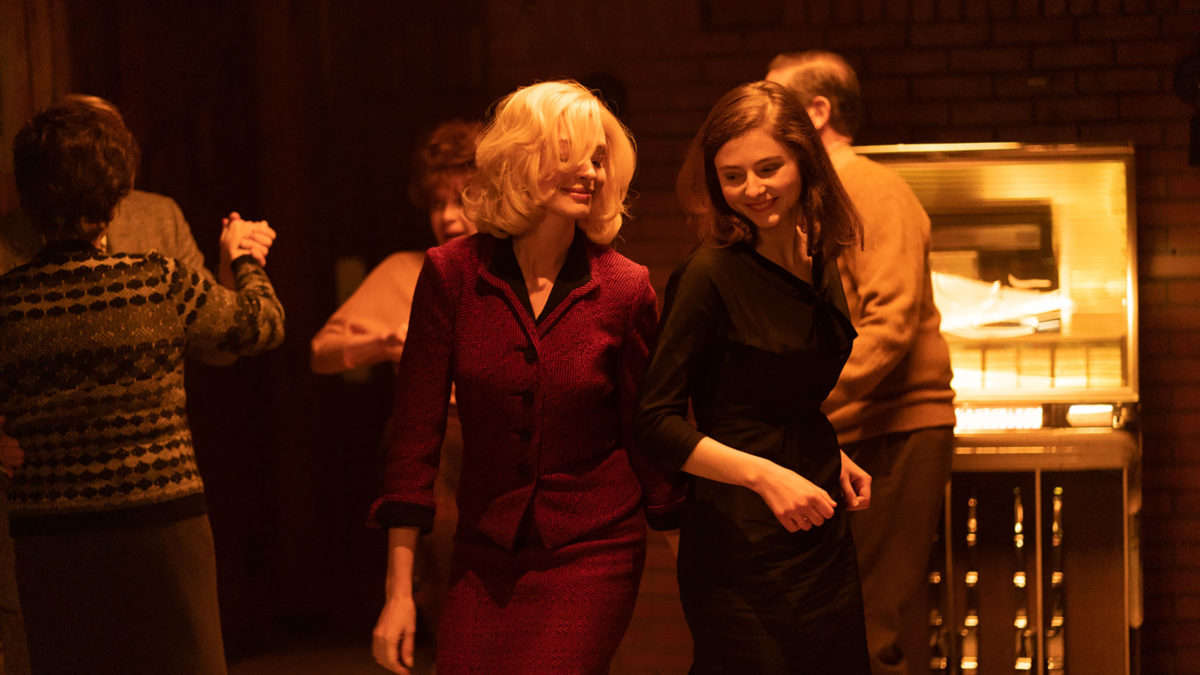
In the cold, dreary outskirts of 1960s Boston, Eileen (Thomasin McKenzie) spends her days hoping for a better (or at least more sexually active) life, splitting her time working at a juvenile prison ward and caring for her ailing drunk of a father (Shea Whigham). When the elegant, mysterious Rebecca (Anne Hathaway) glides into her work as the new psychologist on staff, Eileen’s dull world is suddenly brought to life and an unspoken attraction sparks. Little does Eileen know the spark will lead to unimaginably dark consequences. Adapted by the novel’s author Ottessa Moshfegh, here working with Luke Goebel (Causeway), William Oldroyd’s Lady Macbeth follow-up Eileen is lacking in a considered formal approach but strives to make up for this misgiving with a script that offers its talented ensemble an unexpected mix of sensual longing and perverse thrills. While this clash of tones doesn’t entirely gel, part of its appeal is the shock of such contrasts. – Jordan R. (full review)
The Bikeriders (Jeff Nichols; Dec. 1)
After seven long years following the one-two, varied punch of Midnight Special and Loving, director Jeff Nichols is finally back. The Bikeriders––bringing together the stellar cast of Tom Hardy, Austin Butler, Jodie Comer, Michael Shannon, Boyd Holbrook, Norman Reedus, and Mike Faist––is set in the 1960s and follows a decade in the lives of a motorcycle club. It’s tipped for a Telluride premiere; look for reactions soon.
The Zone of Interest (Jonathan Glazer; Dec. 8)
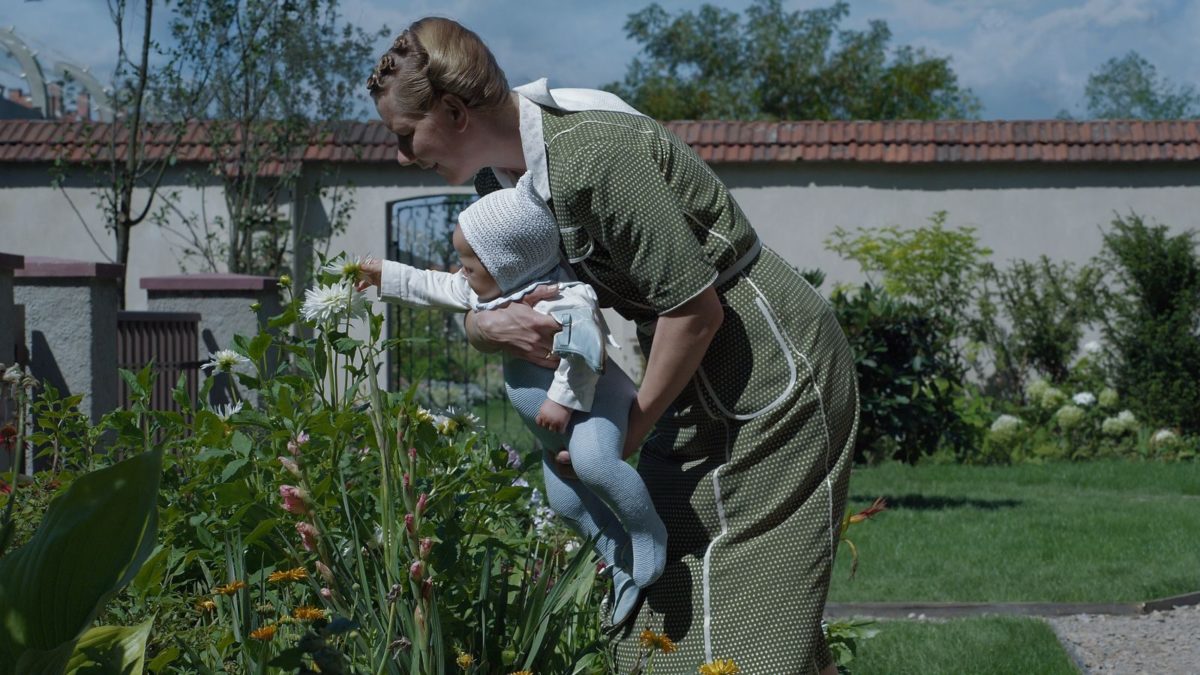
Ten years after Under the Skin, the brilliant, elusive Johnathan Glazer returns with one of the most haunting films of this or any year. It’s adapted from Martin Amis’ acidic 2014 novel, though to call this an adaptation would be like saying a thunderstorm adapts the wind. Just as he did with Under the Skin, Glazer takes but a sliver of the source text and lets his imagination––perhaps his nightmares––take over. In his novel Amis alternated between the perspectives of an Auschwitz camp Commander, the mid-level officer who seduces his wife, and the antihero Szmul, a Jewish man who heads the Sonderkommando unit. Glazer strips the vast majority of it away: this is not a film that dares get too close to anyone’s perspective, let alone three. – Rory O. (full review)
Poor Things (Yorgos Lanthimos; Dec. 8)

What started as September curiosity, with many predicting Lanthimos would go further down a peculiar rabbit hole and perhaps turn away those that embraced The Favourite, has turned into belle of the festival ball. Poor Things, which brings together Emma Stone, Willem Dafoe, Mark Ruffalo, Ramy Youssef, Jerrod Carmichael, Christopher Abbott, Margaret Qualley, and Kathryn Hunter, is now the rare film that will play at Venice, Telluride (if premiere status homework is any indication), and NYFF. Scripted by Tony McNamara based on Alasdair Gray’s 1992 novel, this Frankenstein reimagining looks to be a vibrant, strange odyssey with a carte-blanche approach for the Greek filmmaker. – Jordan R.
All of Us Strangers (Andrew Haigh; Dec. 22)
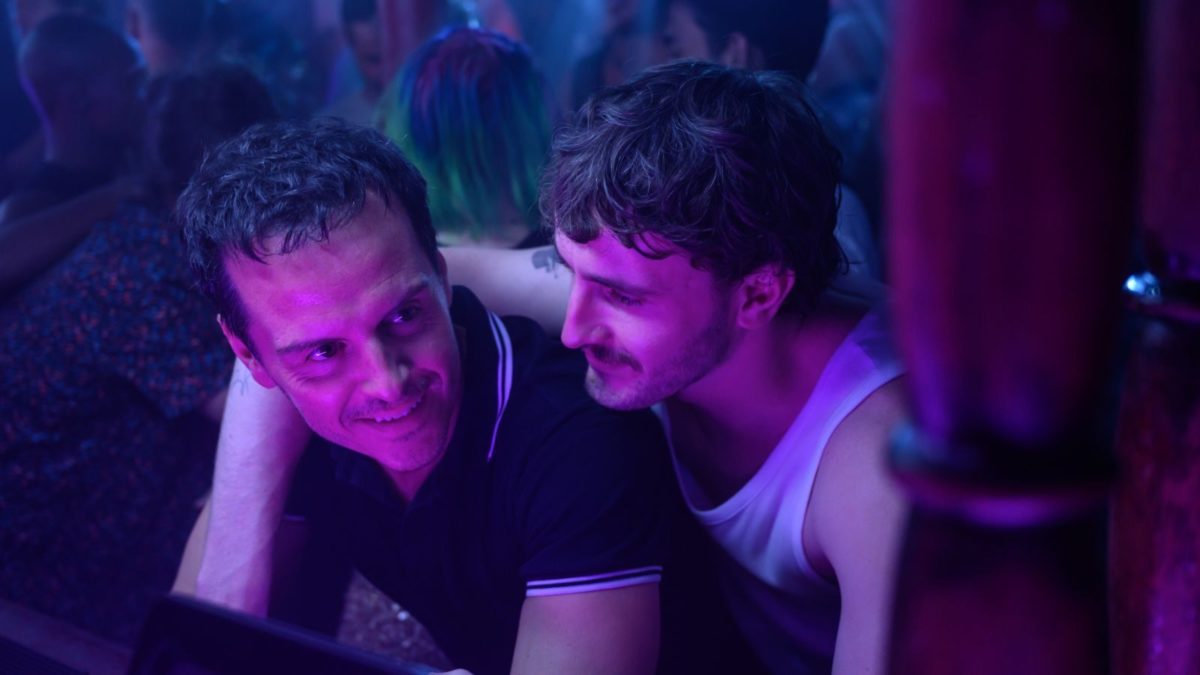
With his tender sensibilities piercing to the matters of the heart, Andrew Haigh has never misstepped but with a rather tepid response to the wonderful Lean on Pete, the filmmaker thankfully seems to be getting a higher-profile release for his next feature All of Us Strangers. Led by Andrew Scott and Paul Mescal, the gay drama concerns a screenwriter who returns to his childhood home only to find his long-dead parents are living and look the same age as the day they died. With the making of a mysterious, emotional drama, consider this among our most-anticipated films of the fall. – Jordan R.
The Iron Claw (Sean Durkin; Dec. 22)
Sean Durkin’s biographical film will examine the Von Erich family, who dominated professional wrestling for decades but suffered from what became deemed the “Von Erich curse.” Efron stars as Kevin Von Erich, while two rising stars with breakout 2022s: Jeremy Allen White (The Bear) and Harris Dickinson (Triangle of Sadness) fill out two of his brothers. A near decade went between Durkin’s debut feature Martha Marcy May Marlene and 2020’s The Nest, so it’s good to see him set up this new project more quickly, which is lensed on 35mm by Mátyás Erdély (Son of Saul, The Nest). – Caleb H.
Ferrari (Michael Mann; Dec. 25)
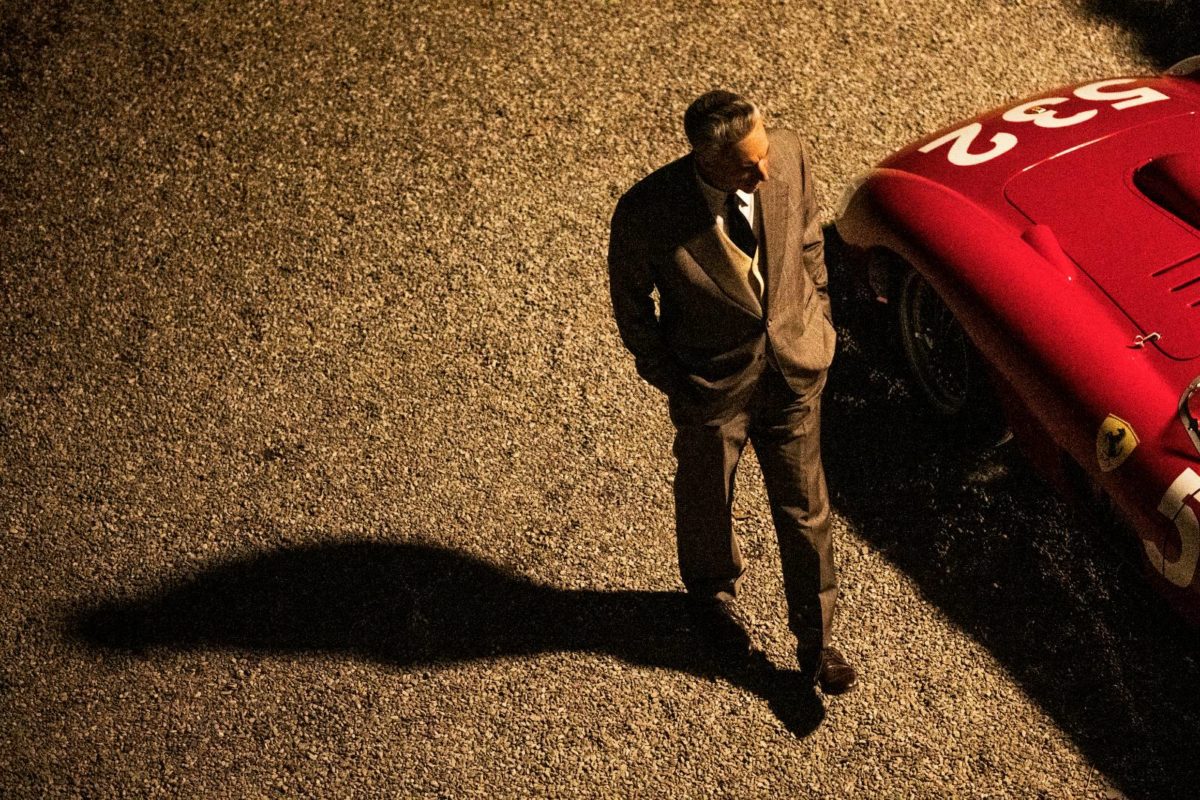
There’s all the stuff we might say about how long Michael Mann has hoped to make this film, how long we’ve waited for any new film (the Tokyo Vice pilot is nice but doesn’t count), or how great it is having Adam Driver get Ferrari (ahem) over the finish line. I’d rather defer to cinematographer Erik Messerschmidt telling me the goal was to have audiences “feeling like they’re in this machine. This machine is rattling around and smells like gasoline and there’s oil and rocks kicking up on the faces. A lot of what we were trying to do was bring the frenzied energy of racing––what these drivers experienced––onto the screen and bring the audience right into the car with them.” Start your engines. – Nick N.
All Dirt Roads Taste of Salt (Raven Jackson; Date TBD)
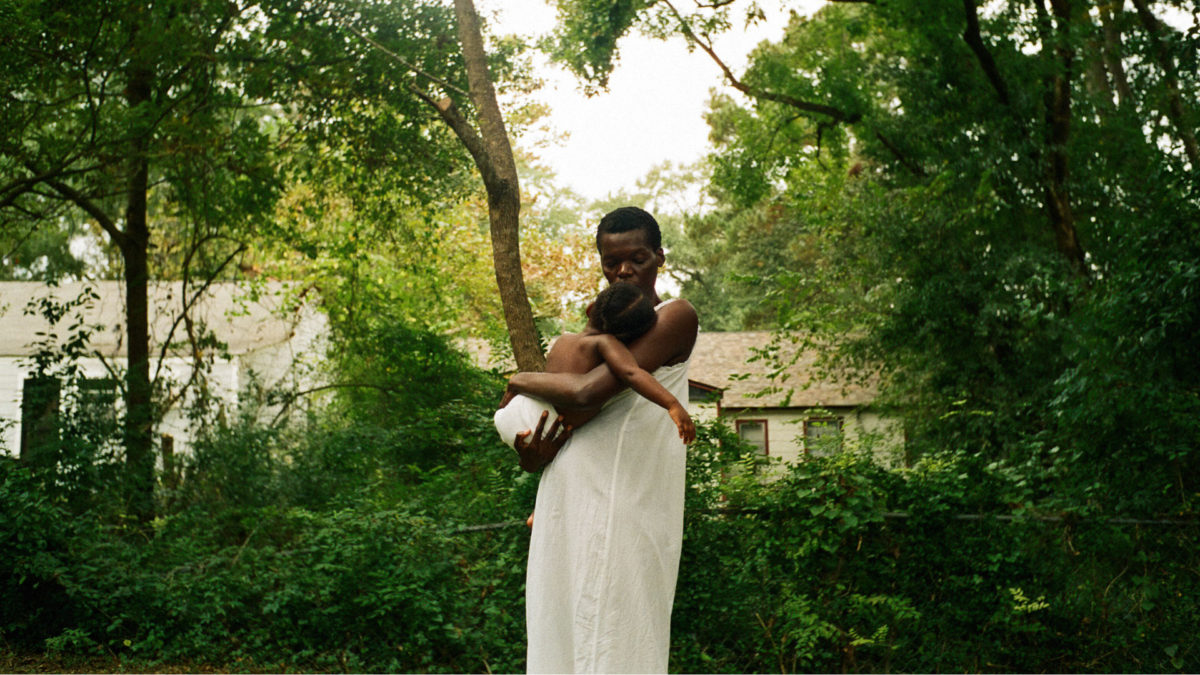
Raven Jackson’s directorial debut All Dirt Roads Taste of Salt is a distillation of cinema to its purest form, a stunning patchwork of experience and memory. Daring in its formal gambits but universal for how it explores humanity’s connection with nature, loss, and love, it’s among few films in the history of Sundance that genuinely seems to advance the language and possibilities of cinema. With adoring notes of Terrence Malick, Andrei Tarkovsky, Carlos Reygadas, and Julie Dash, Jackson isn’t wholly reinventing what has come before, but rather pushing this poetic-based variety into thrilling new territories. – Jordan R. (full review)
The Boy and the Heron (Hayao Miyazaki; Date TBD)

As our number one most-anticipated movie of the year, there’s not much more that needs to be said to get you excited for Hayao Miyazaki’s first film in a decade and likely the Japanese master’s last. While plot details have trickled out following its Japanese release and more images are available than just the above, we’re still hoping not to be too spoiled when it comes to the film’s North American debut, kicking off at TIFF then coming to NYFF ahead of a fall release. – Leonard P.
More Films to See
If we included restorations, the new 4K restoration of Jonathan Demme’s Stop Making Sense––getting a deserved global IMAX release on September 22 followed by a wide release a week later––would crown this list. There are also more films to have on your radar, which we’ve rounded up below.
- Ernest & Celestine: A Trip to Gibberitia (Sept. 1)
- Amerikatsi (Sept. 8)
- Hello Dankness (Sept. 8)
- Radical Wolfe (Sept. 15)
- Robe of Gems (Sept. 15)
- It Lives Inside (Sept. 22)
- The Storms of Jeremy Thomas (Sept. 22)
- Mami Wata (Sept. 29)
- The Burial (Maggie Betts; Oct. 6)
- Reptile (Oct. 6)
- Fantastic Machine (Oct. 13)
- The Persian Version (Oct. 13)
- Radical (Oct. 20)
- Beyond Utopia (Oct. 23)
- Four Daughters (Oct. 27)
- Nyad (Nov. 3)
- Rustin (Nov. 17)
- Pianoforte (Dec. 1)
- Leave the World Behind (Dec. 8)
- Raging Grace (Dec. 8)
- Chicken Run: Dawn of the Nugget (Dec. 15)
- Anyone But You (Dec. 15)
- Rebel Moon: Part One – A Child of Fire (Dec. 22)
- The Boys in the Boat (Dec. 25)
